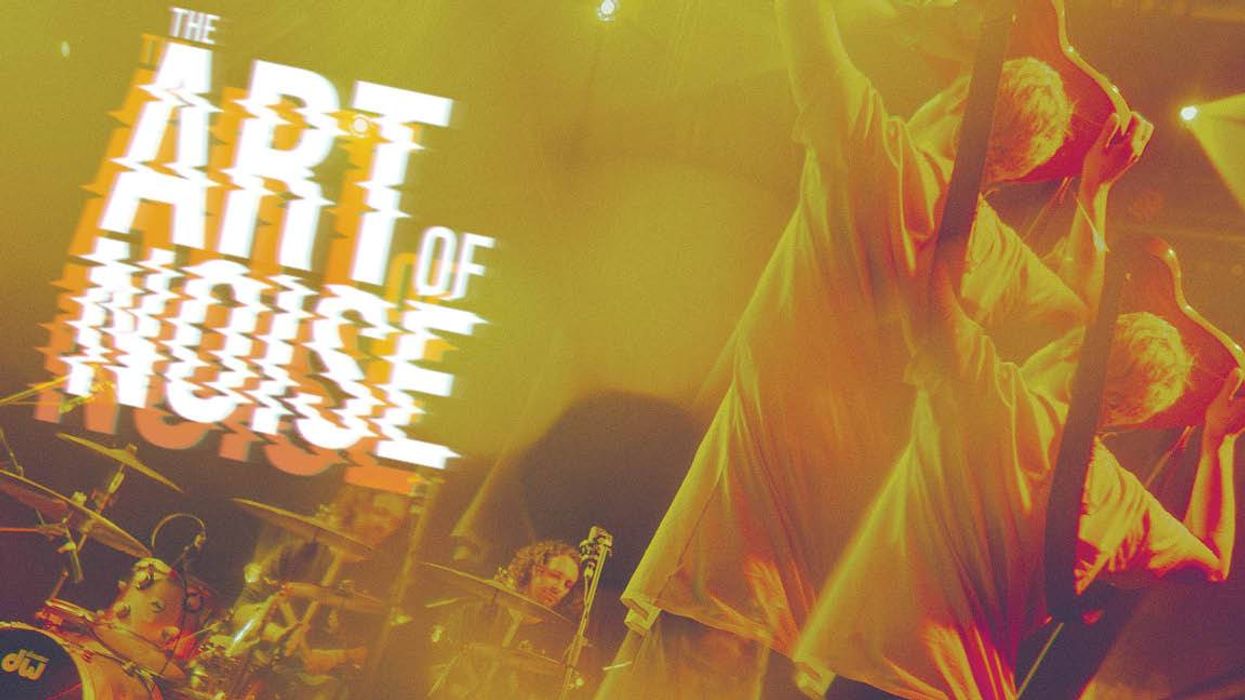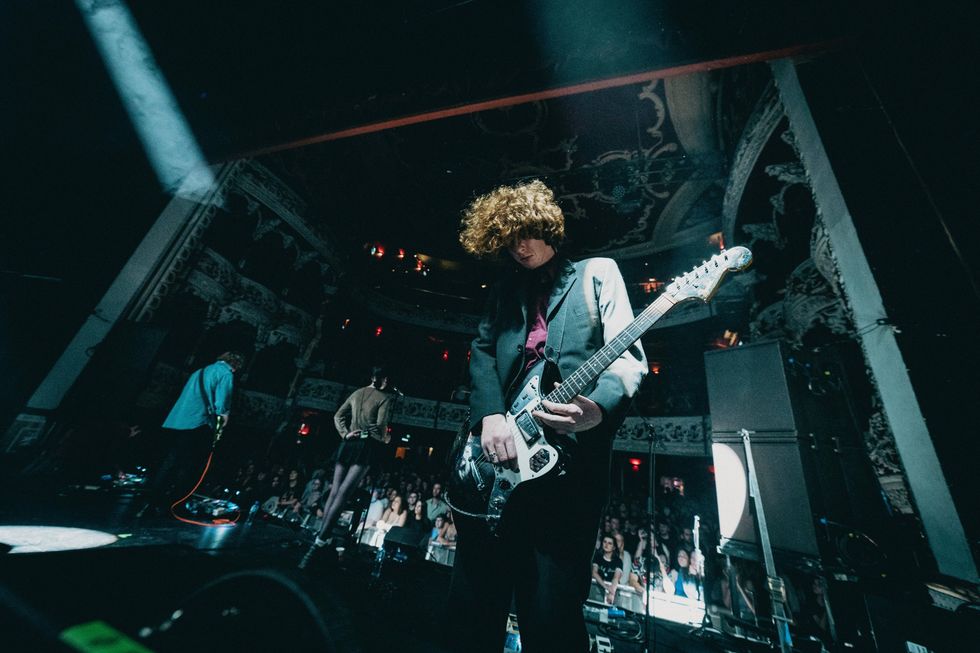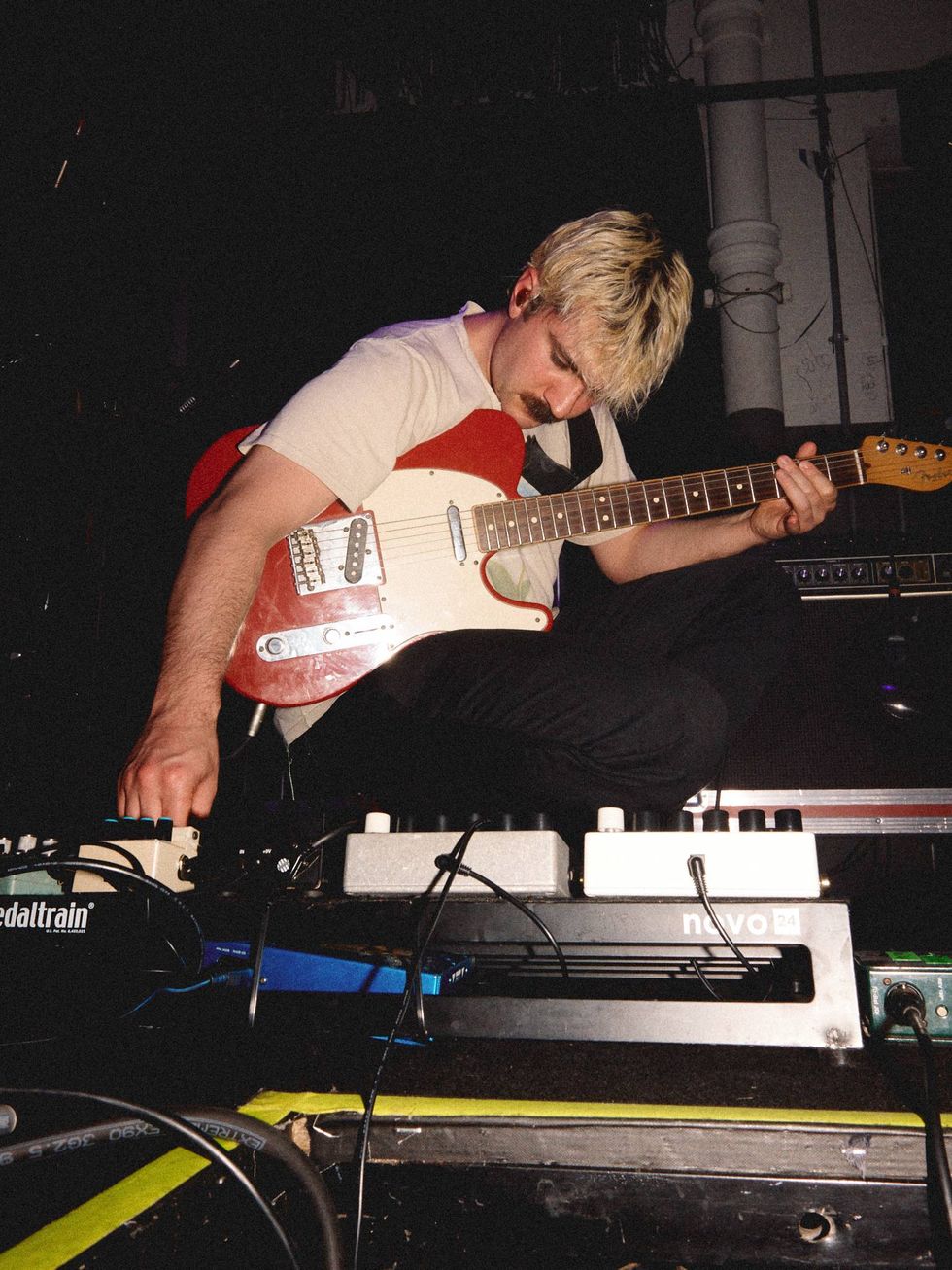I’ve been following the songwriting of Taylor Goldsmith, the frontman of L.A.-based, folk-rock band Dawes, since early 2011. At the time, I was a sophomore in college, and had just discovered their debut, North Hills, a year and a half late. (That was thanks in part to one of its tracks, “When My Time Comes,” pervading cable TV via its placement in a Chevy commercial over my winter break.) As I caught on, I became fully entranced.
Goldsmith’s lyrics spoke to me the loudest, with lines like “Well, you can judge the whole world on the sparkle that you think it lacks / Yes, you can stare into the abyss, but it’s starin’ right back” (a casual Nietzsche paraphrase); and “Oh, the snowfall this time of year / It’s not what Birmingham is used to / I get the feeling that I brought it here / And now I’m taking it away.” The way his words painted a portrait of the sincere, sentimental man behind them, along with his cozy, unassuming guitar work and the band’s four-part harmonies, had me hooked.
Nothing Is Wrong and Stories Don’t End came next, and I happily gobbled up more folksy fodder in tracks like “If I Wanted,” “Most People,” and “From a Window Seat.” But 2015’s All Your Favorite Bands, which debuted at No. 1 on the Billboard Folk Albums chart, didn’t land with me, and by the time 2016’s We’re All Gonna Die was released, it was clear that Goldsmith had shifted thematically in his writing. A friend drew a thoughtful Warren Zevon comparison to the single, “When the Tequila Runs Out”—a commentary on vapid, conceited, American-socialite party culture—but it still didn’t really do it for me. I fell off the Dawes train a bit, and became somewhat oblivious to their three full-lengths that followed.
Oh Brother is Goldsmith’s latest addition to the Dawes songbook, and I’m grateful to say that it’s brought me back. After having done some catching up, I’d posit that it’s the second work in the third act, or fall season, of his songwriting—where 2022’s Misadventures of Doomscroller cracked open the door, Oh Brother swings it wide. And it doesn’t have much more than Dawes’ meat and potatoes, per se, in common with acts one or two. Some moodiness has stayed—as well as societal disgruntlement and the arrangement elements that first had me intoxicated. But then there’s the 7/4 section in the middle of “Front Row Seat”; the gently unwinding, quiet, intimate jazz-club feel of “Surprise!”; the experimentally percussive, soft-spoken “Enough Already”; and the unexpected, dare I say, Danny Elfman-esque harmonic twists and turns in the closing track, “Hilarity Ensues.”
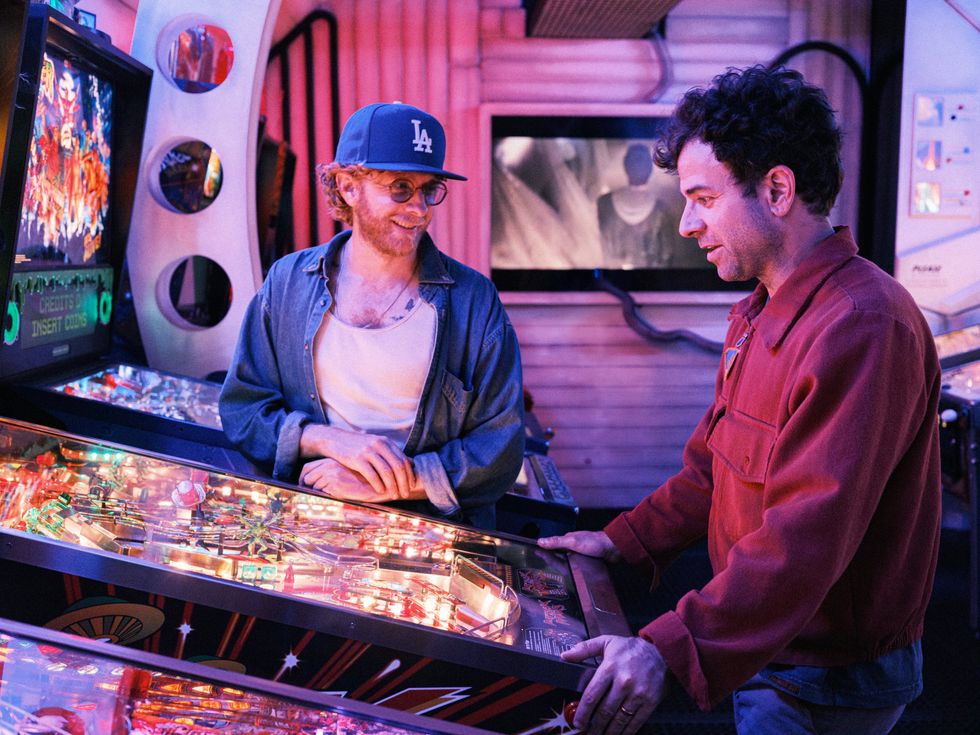
The main engine behind Dawes, the Goldsmith brothers are both native “Angelinos,” having been born and raised in the L.A. area. Taylor is still proud to call the city his home.
Photo by Jon Chu
“I have this working hypothesis that who you are as a songwriter through the years is pretty close to who you are in a dinner conversation,” Goldsmith tells me in an interview, as I ask him about that thematic shift. “When I was 23, if I was invited to dinner with grownups [laughs], or just friends or whatever, and they say, ‘How you doin’, Taylor?’ I probably wouldn’t think twice to be like, ‘I’m not that good. There’s this girl, and … I don’t know where things are at—can I share this with you? Is that okay?’ I would just go in in a way that’s fairly indiscreet! And I’m grateful to that version of me, especially as a writer, because that’s what I wanted to hear, so that’s what I was making at the time.
“But then as I got older, it became, ‘Oh, maybe that’s not an appropriate way to answer the question of how I’m doing.’ Or, ‘Maybe I’ve spent enough years thinking about me! What does it feel like to turn the lens around?’” he continues, naming Elvis Costello and Paul Simon as inspirations along the way through that self-evolution. “Also, trying to be mindful of—I had strengths then that I don’t have now, but I have strengths now that I didn’t have then. And now it’s time to celebrate those. Even in just a physical way, like hearing Frank Zappa talking about how his agility as a guitar player was waning as he got older. It’s like, that just means that you showcase different aspects of your skills.
“I am a changing person. It would be weird if I was still writing the same way I was when I was 23. There would probably be some weird implications there as to who I’d be becoming as a human [laughs].”
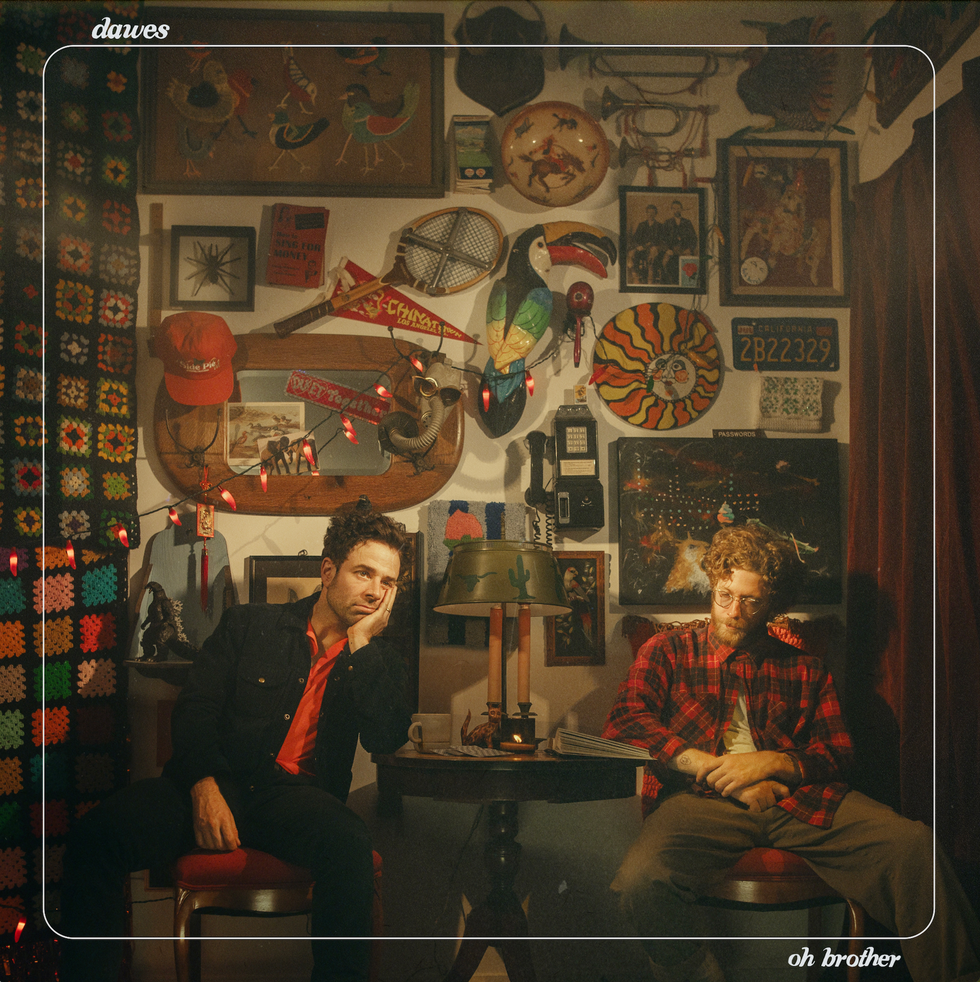
Taylor Goldsmith considers Oh Brother, the ninth full-length in Dawes’ catalog, to be the beginning of a new phase of Dawes, containing some of his most unfiltered, unedited songwriting.
Since its inception, the engine behind Dawes has been the brothers Goldsmith, with Taylor on guitar and vocals and Griffin on drums and sometimes vocal harmonies. But they’ve always had consistent backup. For the first several years, that was Wylie Gelber on bass and Tay Strathairn on keyboards. On We’re All Gonna Die, Lee Pardini replaced Strathairn and has been with the band since. Oh Brother, however, marks the departure of Gelber and Pardini.
“We were like, ‘Wow, this is an intense time; this is a vulnerable time,’” remarks Goldsmith, who says that their parting was supportive and loving, but still rocked him and Griffin. “You get a glimpse of your vulnerability in a way that you haven’t felt in a long time when things are just up and running. For a second there, we’re like, ‘We’re getting a little rattled—how do we survive this?’”
They decided to pair up with producer Mike Viola, a close family friend, who has also worked with Mandy Moore—Taylor’s spouse—along with Panic! At the Disco, Andrew Bird, and Jenny Lewis. “[We knew that] he understands all of the parameters of that raw state. And, you know, I always show Mike my songs, so he was aware of what we had cookin’,” says Goldsmith.
Griffin stayed behind the kit, but Taylor took over on bass and keys, the latter of which he has more experience with than he’s displayed on past releases. “We’ve made records where it’s very tempting to appeal to your strengths, where it’s like, ‘Oh, I know how to do this, I’m just gonna nail it,’” he says. “Then there’s records that we make where we really push ourselves into territories where we aren’t comfortable. That contributed to [Misadventures of Doomscroller] feeling like a living, breathing thing—very reactive, very urgent, very aware. We were paying very close attention. And I would say the same goes for this.”
That new terrain, says Goldsmith, “forced us to react to each other and react to the music in new ways, and all of a sudden, we’re exploring new corners of what we do. I’m really excited in that sense, because it’s like this is the first album of a new phase.”
“That forced us to react to each other and react to the music in new ways, and all of a sudden, we’re exploring new corners of what we do.”
In proper folk (or even folk-rock) tradition, the music of Dawes isn’t exactly riddled with guitar solos, but that’s not to say that Goldsmith doesn’t show off his chops when the timing is right. Just listen to the languid, fluent lick on “Surprise!”, the shamelessly prog-inspired riff in the bridge of “Front Row Seat,” and the tactful, articulate line that threads through “Enough Already.” Goldsmith has a strong, individual sense of phrasing, where his improvised melodies can be just as biting as his catalog’s occasional lyrical jabs at presumably toxic ex-girlfriends, and just as melancholy as his self-reflective metaphors, all the while without drawing too much attention to himself over the song.
Of course, most of our conversation revolves around songwriting, as that’s the craft that’s the truest and closest to his identity. “There’s an openness, a goofiness—I even struggle to say it now, but—an earnestness that goes along with who I am, not only as a writer but as a person,” Goldsmith elaborates. “And I think it’s important that those two things reflect one another. ’Cause when you meet someone and they don’t, I get a little bit weirded out, like, ‘What have I been listening to? Are you lying to me?’” he says with a smile.
Taylor Goldsmith's Gear
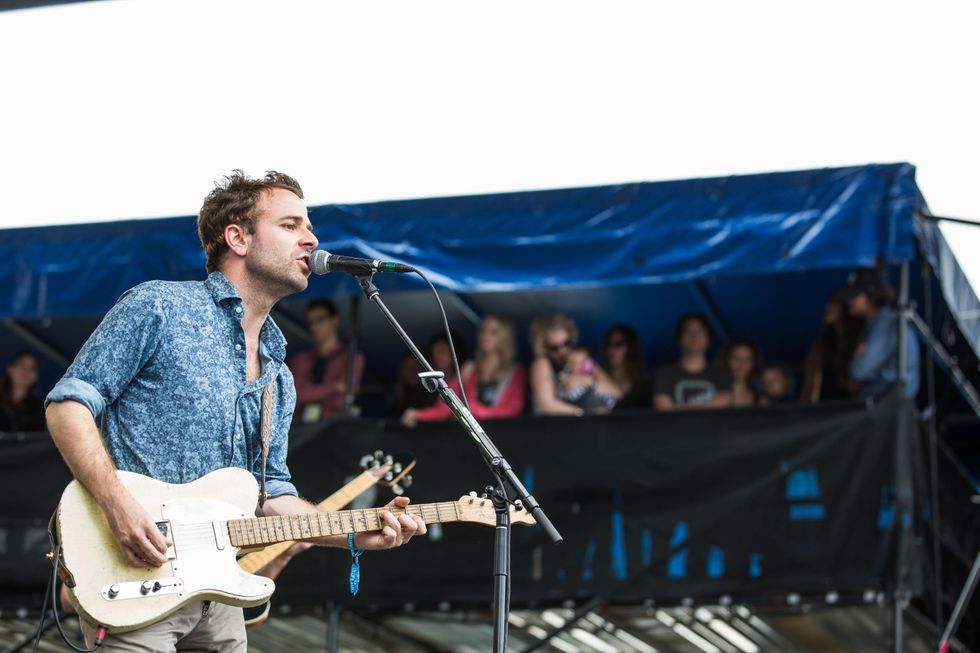
Pictured here performing live in 2014, Taylor Goldsmith has been the primary songwriter for all of Dawes' records, beginning with 2009’s North Hills.
Photo by Tim Bugbee/Tinnitus Photography
Guitars
- Fender Telecaster
- Gibson ES-345
- Radocaster (made by Wylie Gelber)
Amps
- ’64 Fender Deluxe
- Matchless Laurel Canyon
Effects
- 29 Pedals EUNA
- Jackson Audio Bloom
- Ibanez Tube Screamer with Keeley mod
- Vintage Boss Chorus
- Vintage Boss VB-2 Vibrato
- Strymon Flint
- Strymon El Capistan
Strings
- Ernie Ball .010s
In Goldsmith’s songwriting process, he explains that he’s learned to lean away from the inclination towards perfectionism. Paraphrasing something he heard Father John Misty share about Leonard Cohen, he says, “People think you’re cultivating these songs, or, ‘I wouldn’t deign to write something that’s beneath me,’ but the reality is, ‘I’m a rat, and I’ll take whatever I can possibly get, and then I’ll just try to get the best of it.’
“Ever since Misadventures of Doomscroller,” he adds, “I’ve enjoyed this quality of, rather than try to be a minimalist, I want to be a maximalist. I want to see how much a song can handle.” For the songs on Oh Brother, that meant that he decided to continue adding “more observations within the universe” of “Surprise!”, ultimately writing six verses. A similar approach to “King of the Never-Wills,” a ballad about a character suffering from alcoholism, resulted in four verses.
“The economy of songwriting that we’re all taught would buck that,” says Goldsmith. “It would insist that I only keep the very best and shed something that isn’t as good. But I’m not going to think economically. I’m not going to think, ‘Is this self-indulgent?’
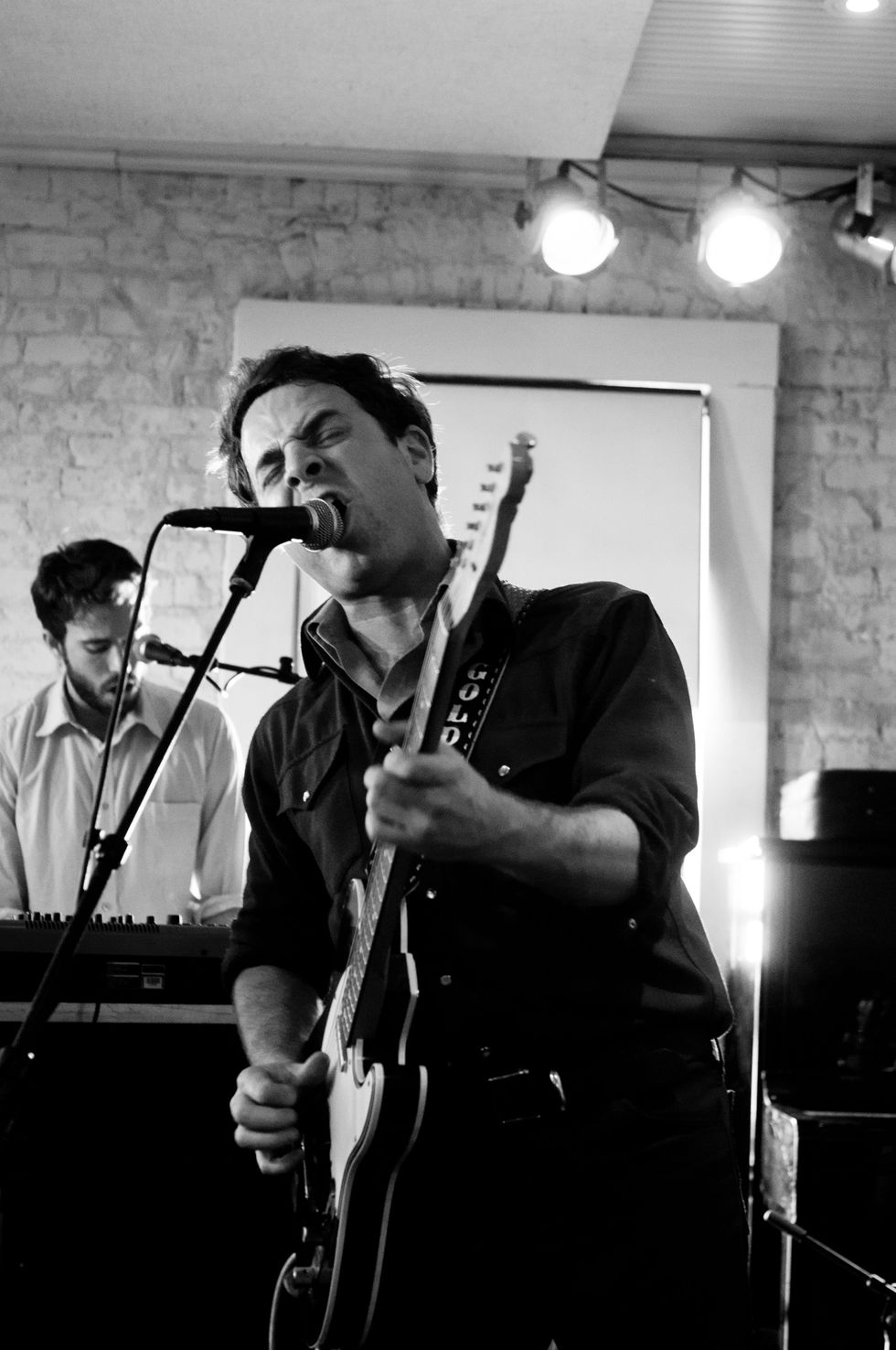
Goldsmith’s songwriting has shifted thematically over the years, from more personal, introspective expression to more social commentary and, at times, even satire, in songs like We’re All Gonna Die’s “When the Tequila Runs Out.”
Photo by Mike White
“I don’t abide that term being applied to music. Because if there’s a concern about self-indulgence, then you’d have to dismiss all of jazz. All of it. You’d have to dismiss so many of my most favorite songs. Because in a weird way, I feel like that’s the whole point—self-indulgence. And then obviously relating to someone else, to another human being.” (He elaborates that, if Bob Dylan had trimmed back any of the verses on “Desolation Row,” it would have deprived him of the unique experience it creates for him when he listens to it.)
One of the joys of speaking with Goldsmith is just listening to his thought processes. When I ask him a question, he seems compelled to share every backstory to every detail that’s going through his head, in an effort to both do his insights justice and to generously provide me with the most complete answer. That makes him a bit verbose, but not in a bad way, because he never rambles. There is an endpoint to his thoughts. When he’s done, however, it takes me a second to realize that it’s then my turn to speak.
To his point on artistic self-indulgence, I offer that there’s no need for artists to feel “icky” about self-promotion—that to promote your art is to celebrate it, and to create a shared experience with your audience.
“I hear what you’re saying loud and clear; I couldn’t agree more,” Goldsmith replies. “But I also try to be mindful of this when I’m writing, like if I’m going to drag you through the mud of, ‘She left today, she’s not coming back, I’m a piece of shit, what’s wrong with me, the end’.... That might be relatable, that might evoke a response, but I don’t know if that’s necessarily helpful … other than dragging someone else through the shit with me.
“In a weird way, I feel like that’s the whole point—self-indulgence. And then obviously relating to someone else, to another human being.”
“So, if I’m going to share, I want there to be something to offer, something that feels like: ‘Here’s a path that’s helped me through this, or here’s an observation that has changed how I see this particular experience.’ It’s so hard to delineate between the two, but I feel like there is a difference.”
Naming the opening track “Mister Los Angeles,” “King of the Never-Wills,” and even the title track to his 2015 chart-topper, “All Your Favorite Bands,” he remarks, “I wouldn’t call these songs ‘cool.’ Like, when I hear what cool music is, I wouldn’t put those songs next to them [laughs]. But maybe this record was my strongest dose of just letting me be me, and recognizing what that essence is rather than trying to force out certain aspects of who I am, and force in certain aspects of what I’m not. I think a big part of writing these songs was just self-acceptance,” he concludes, laughing, “and just a whole lot of fishing.”
YouTube It
Led by Goldsmith, Dawes infuses more rock power into their folk sound live at the Los Angeles Ace Hotel in 2023.


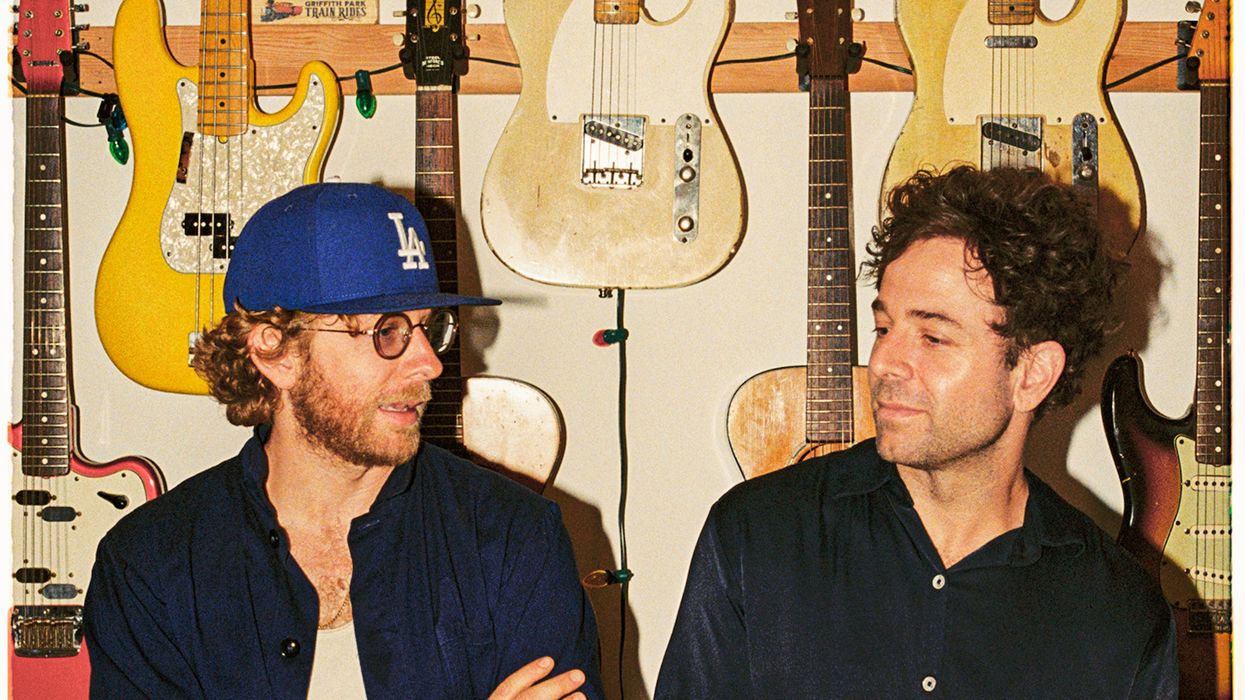

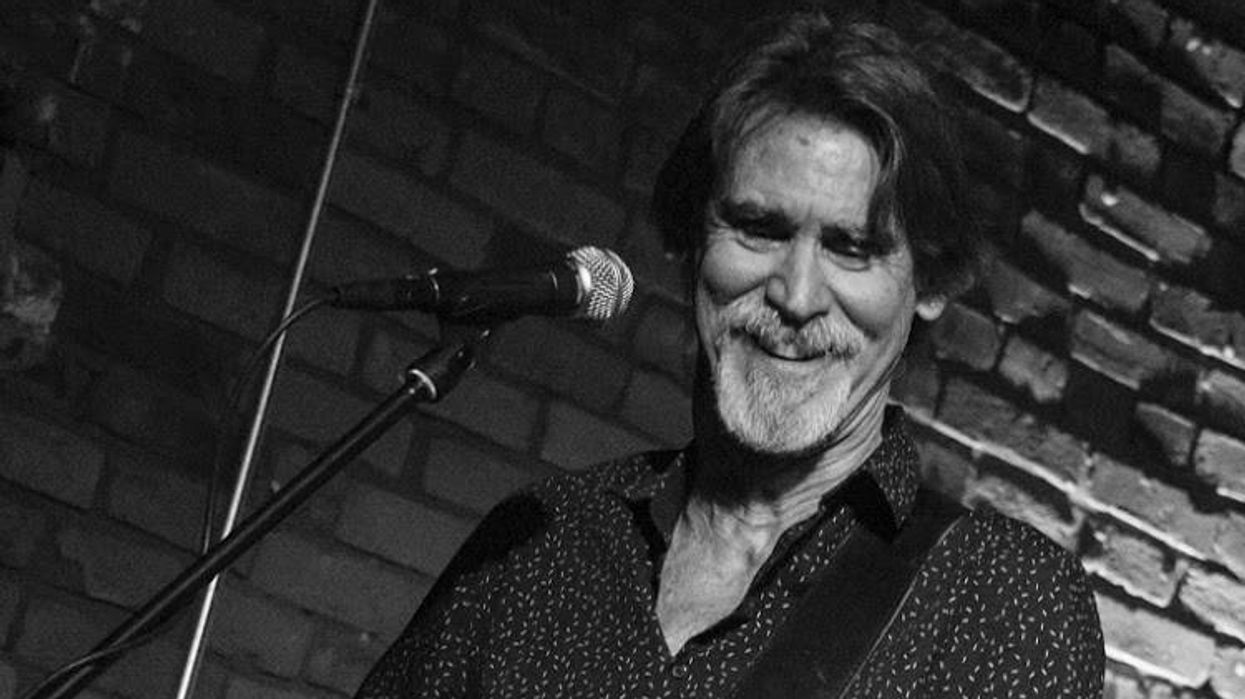
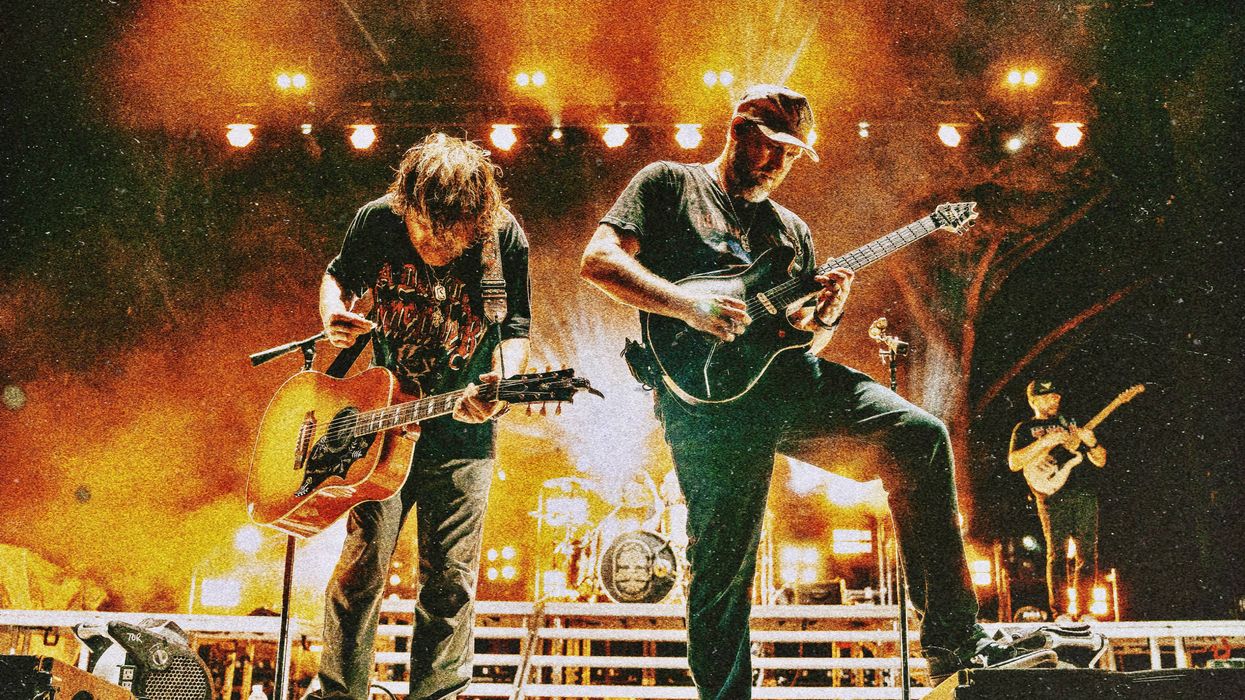
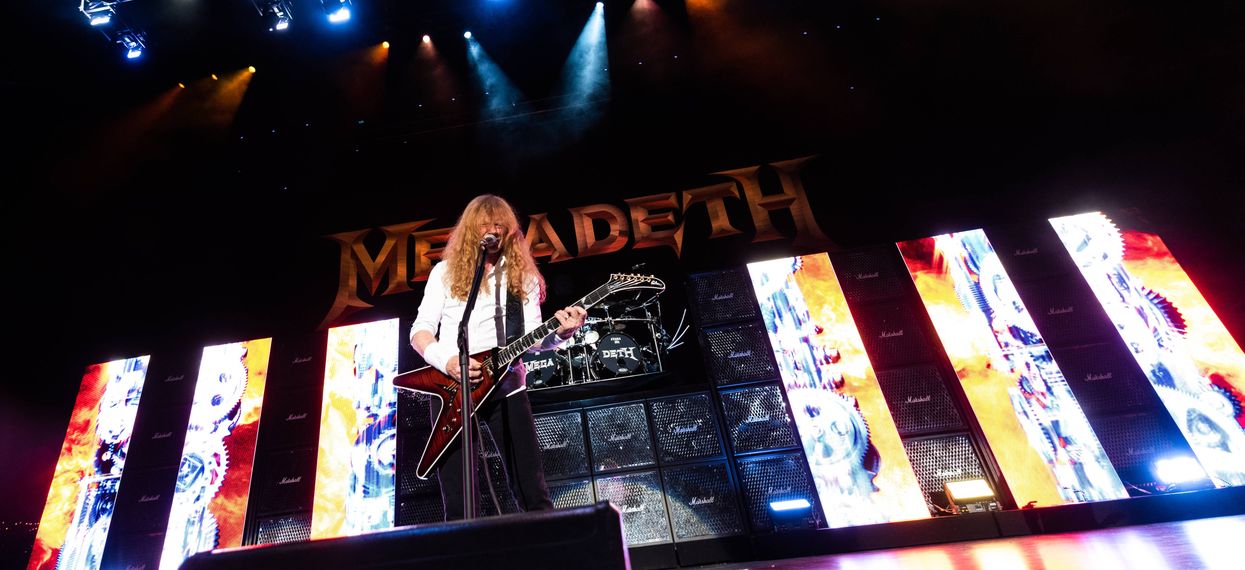
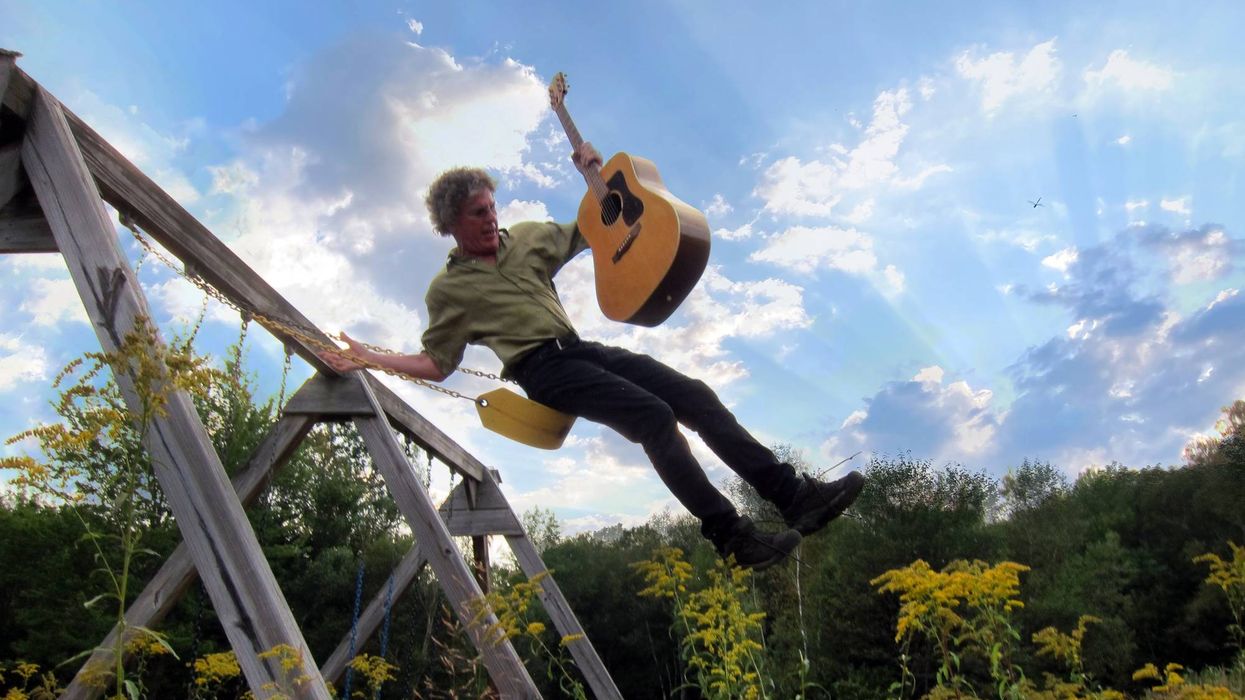
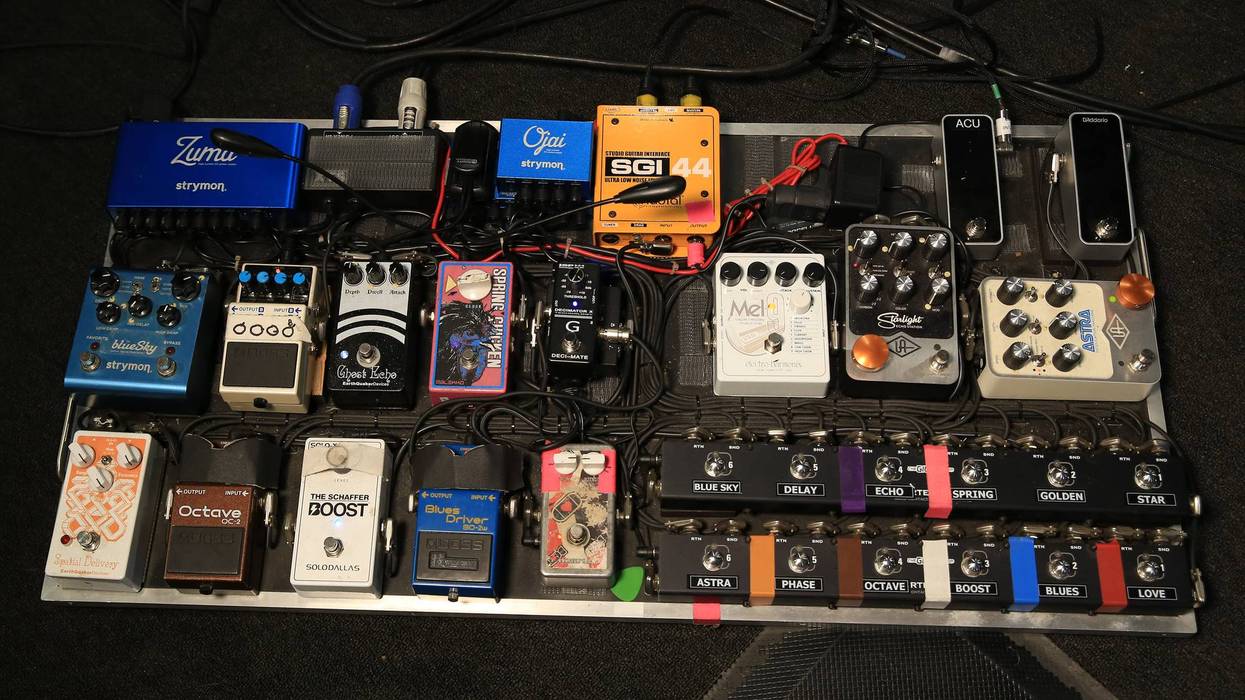
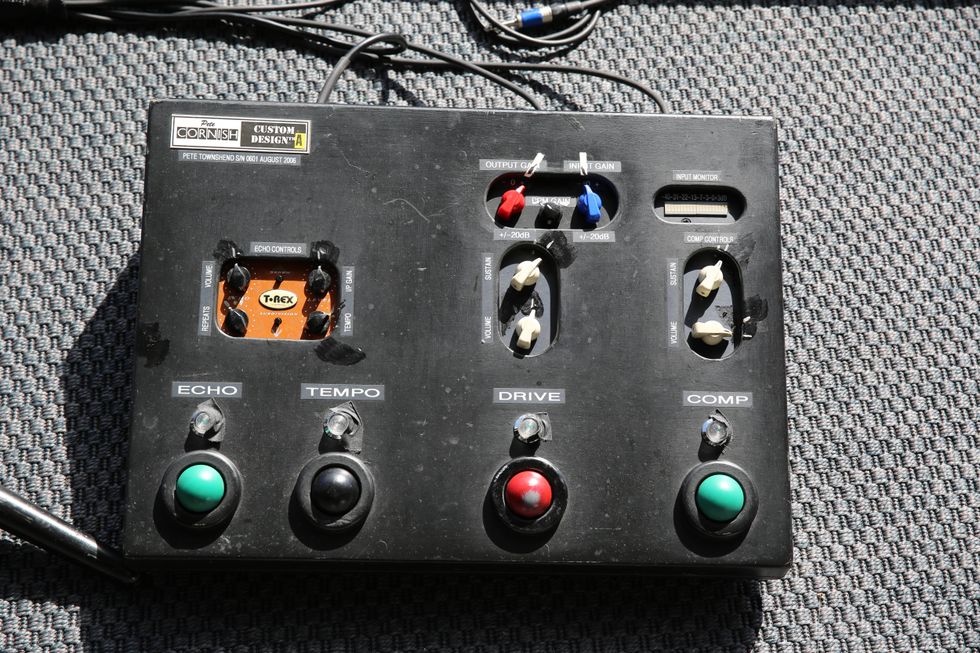
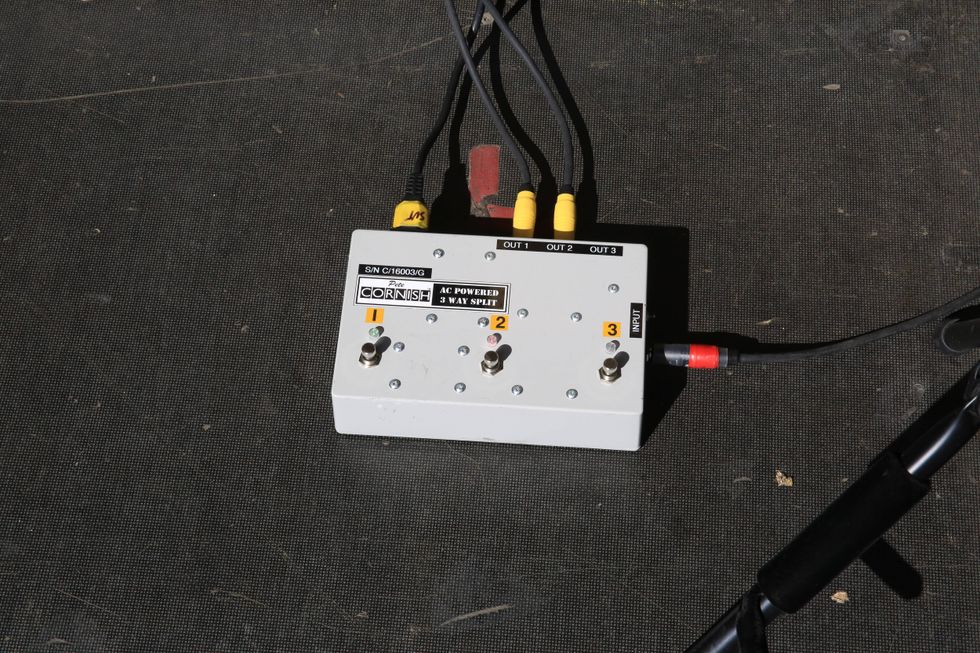
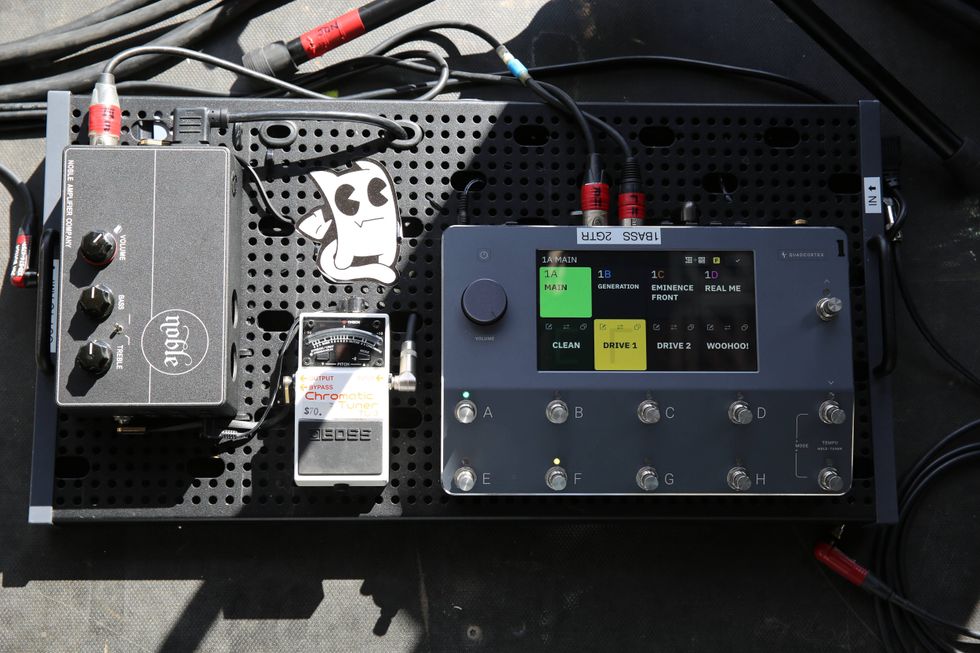
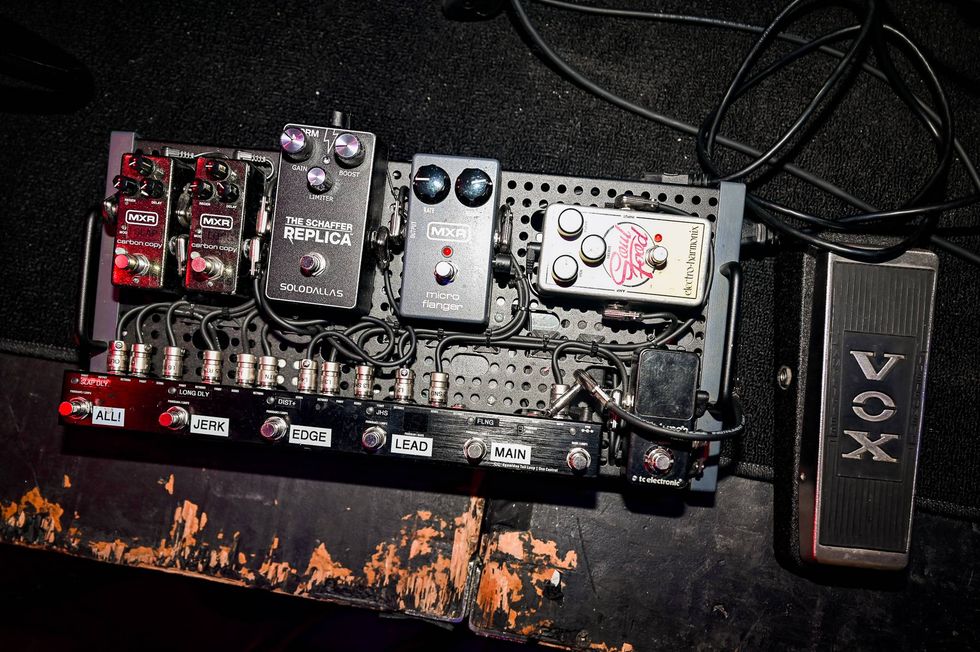
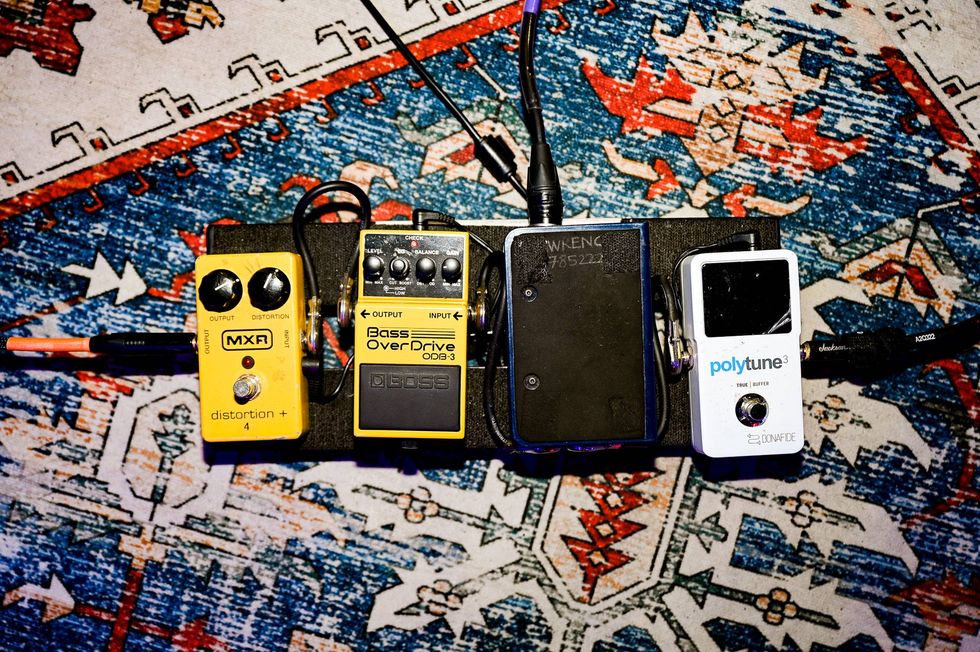
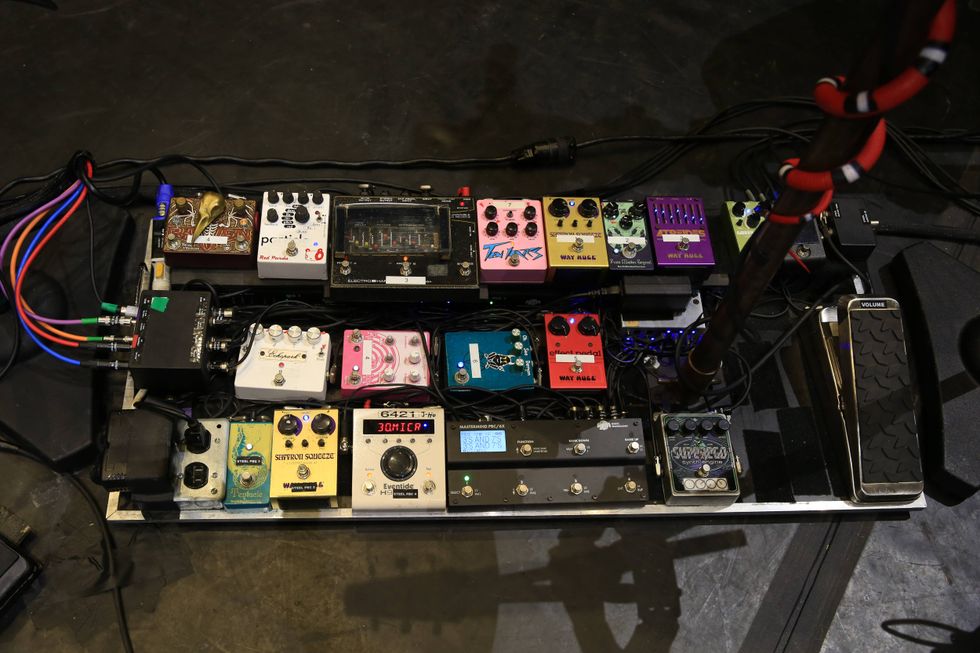
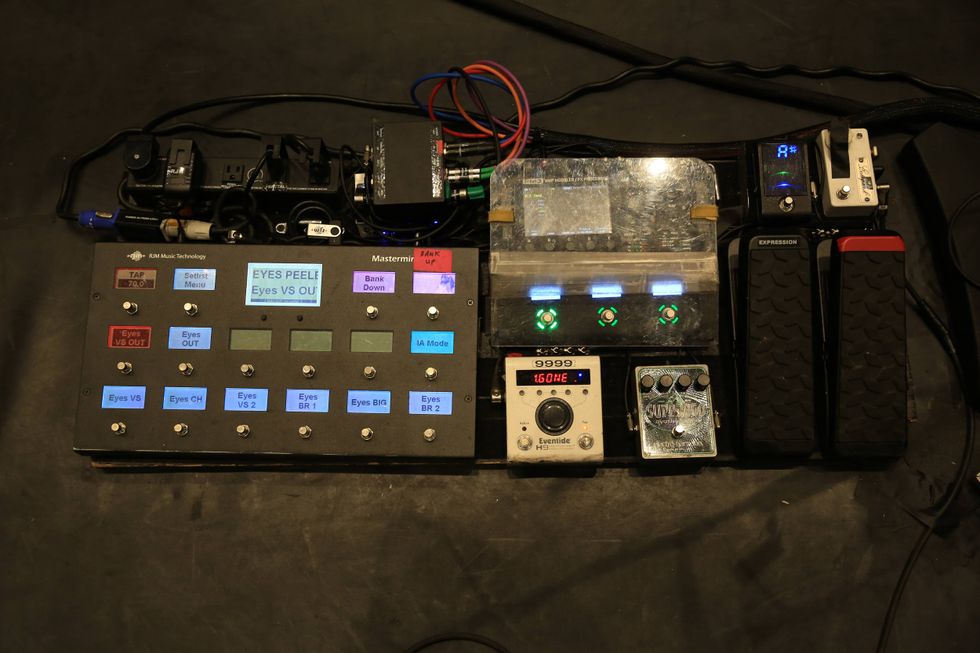
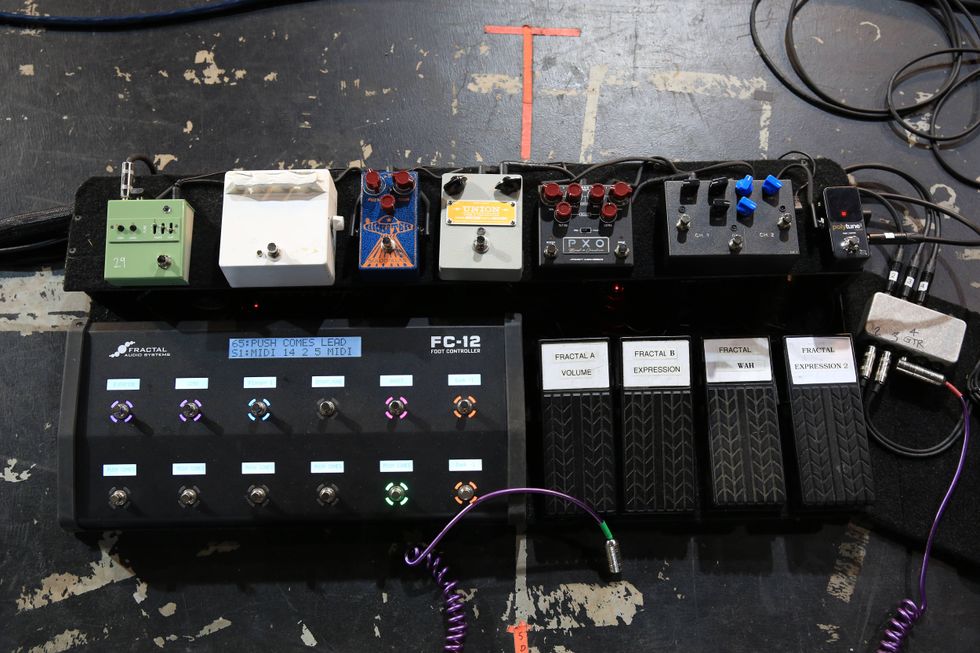
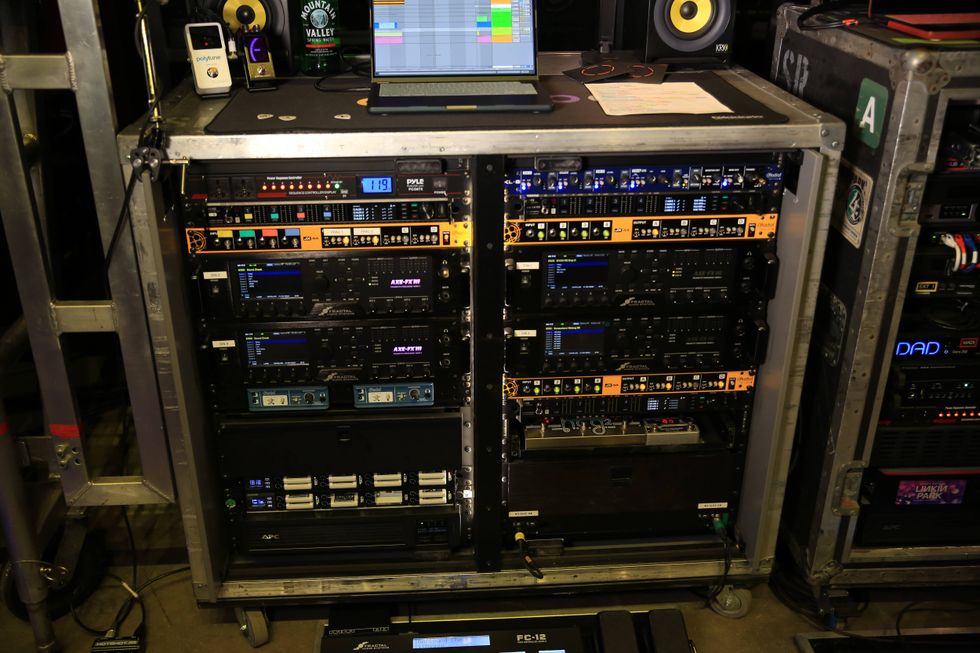
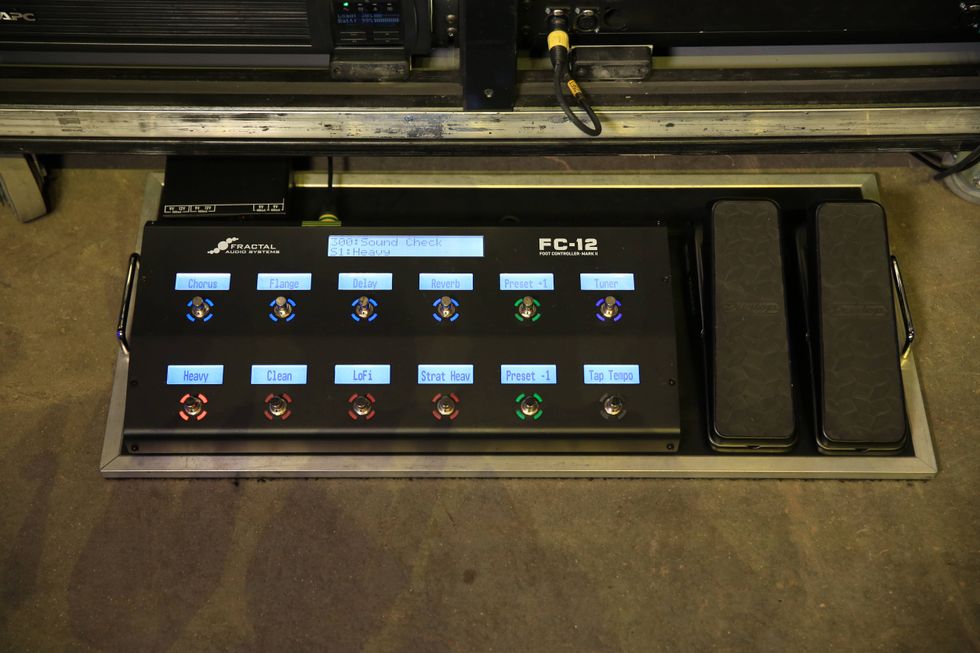
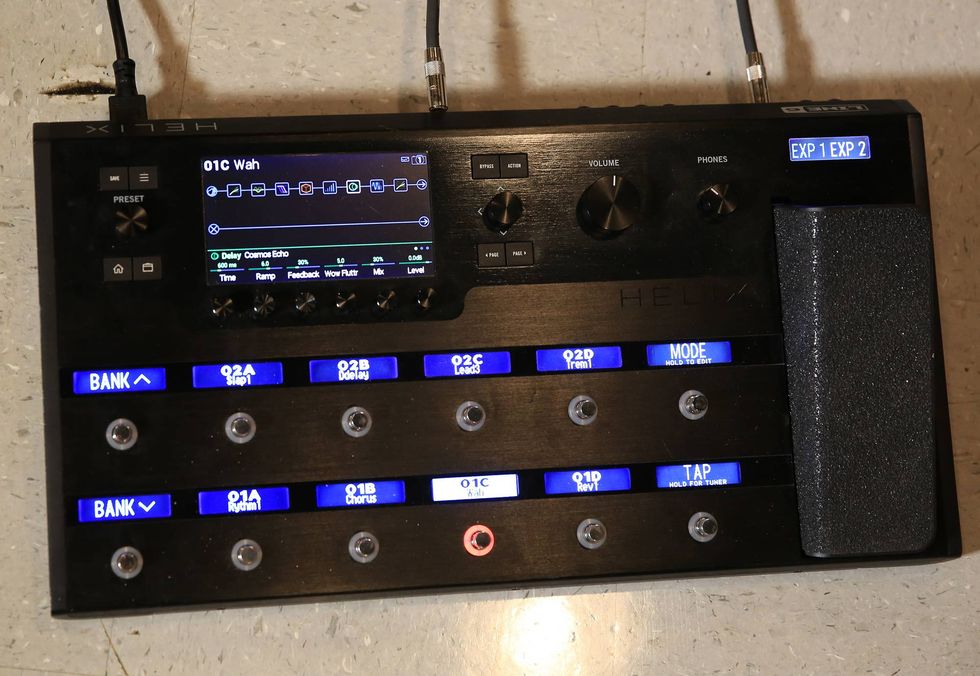
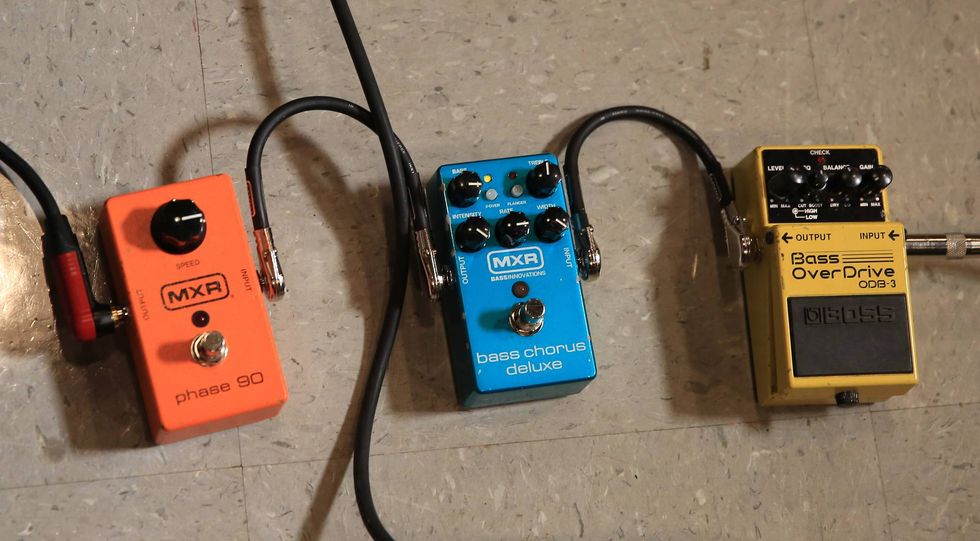
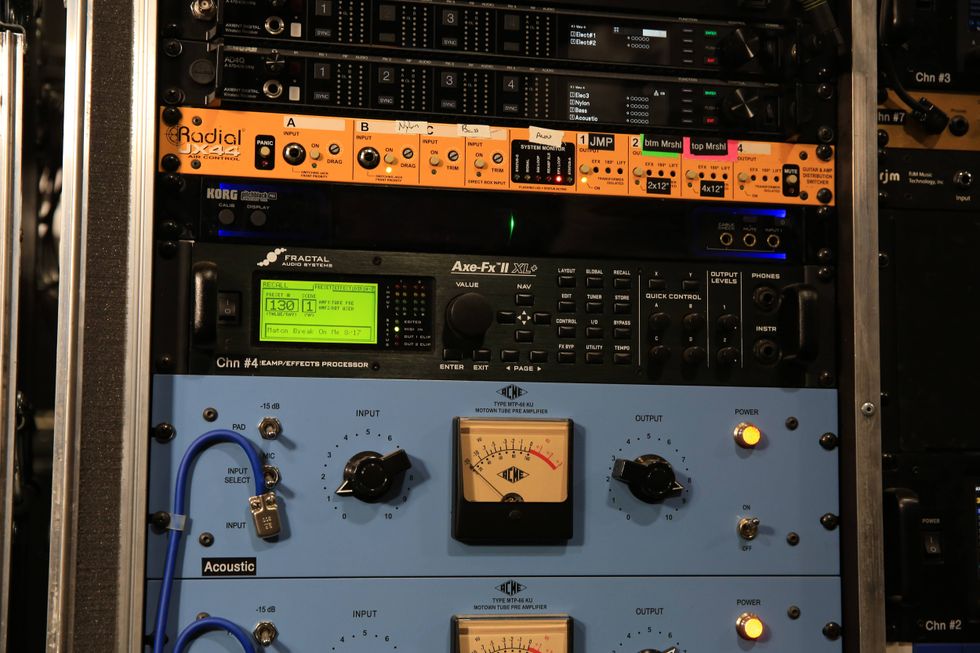
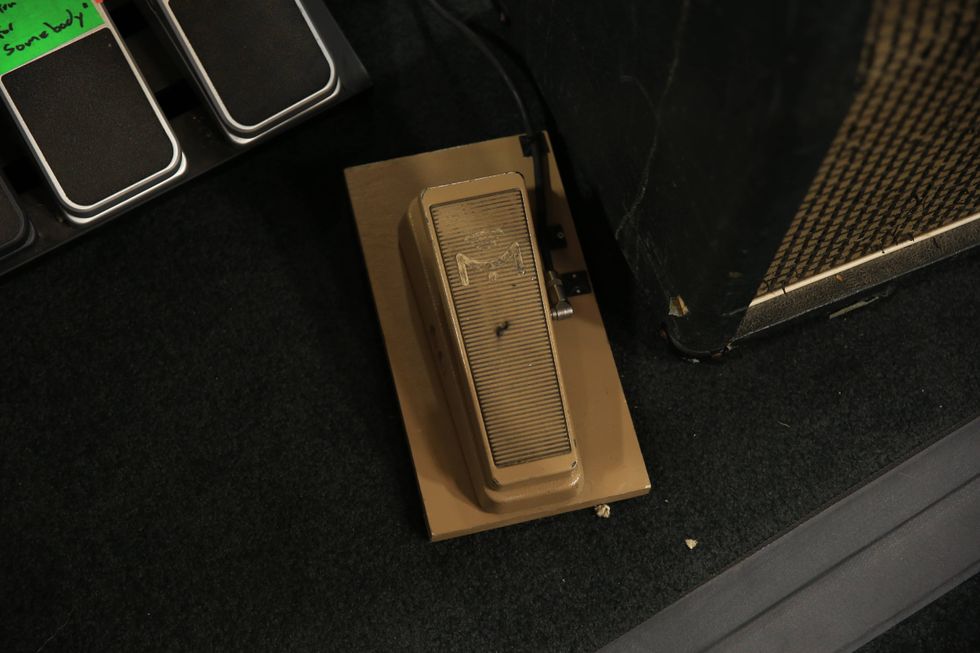
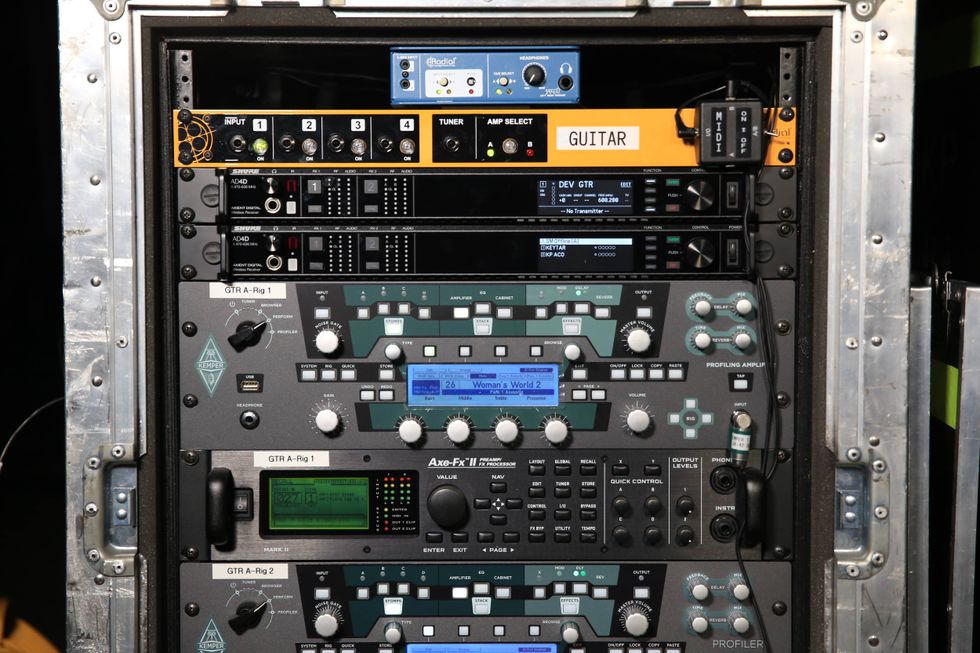
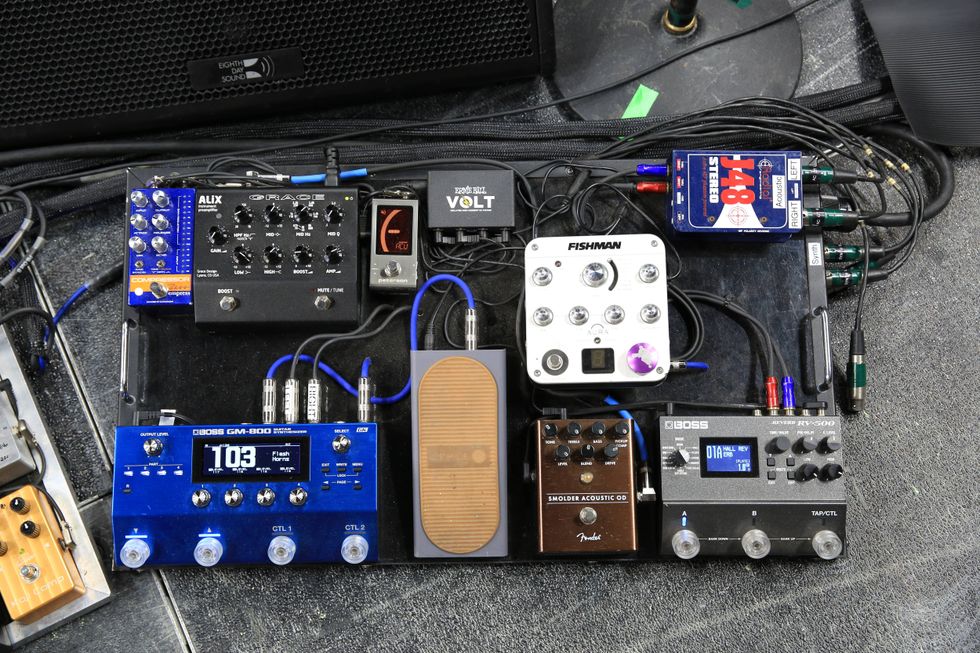
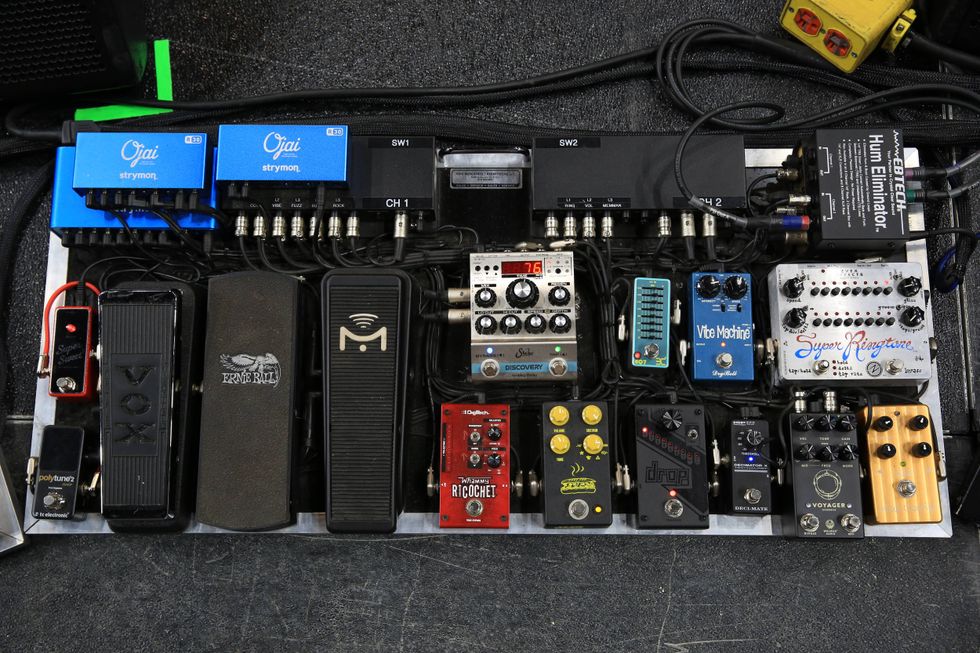
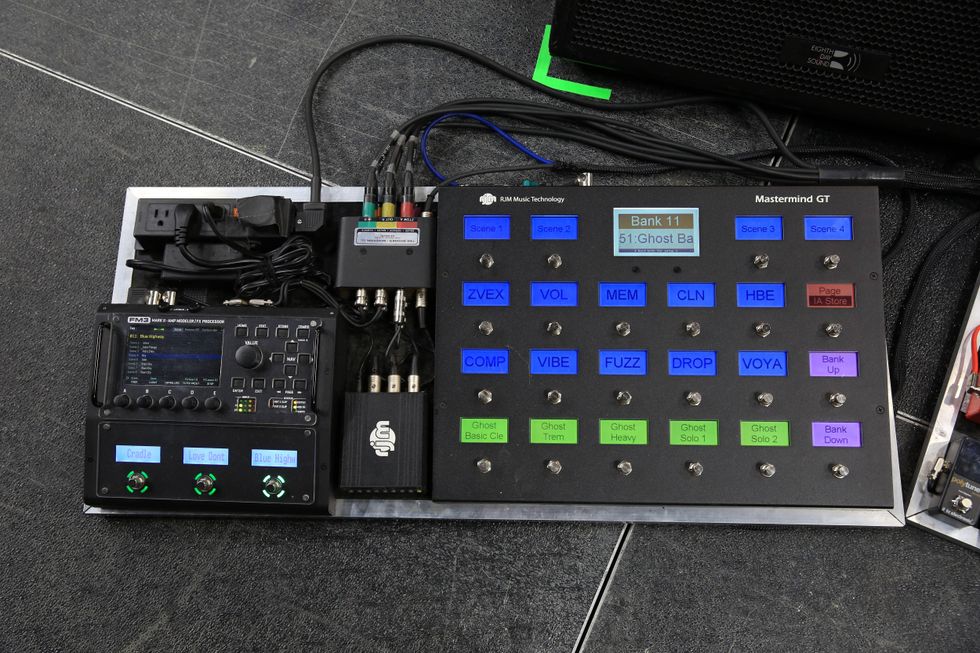
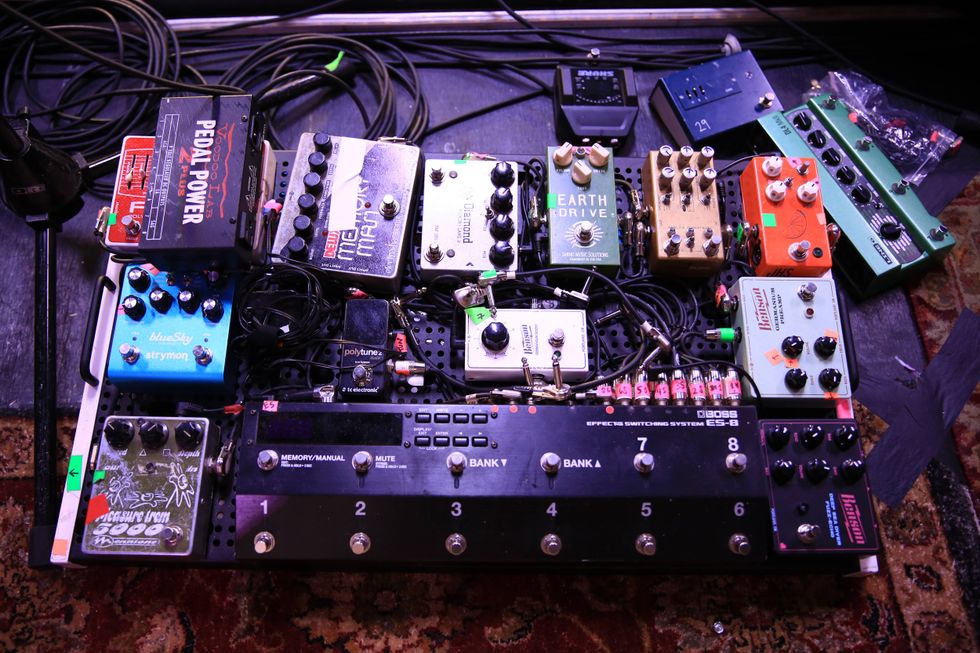
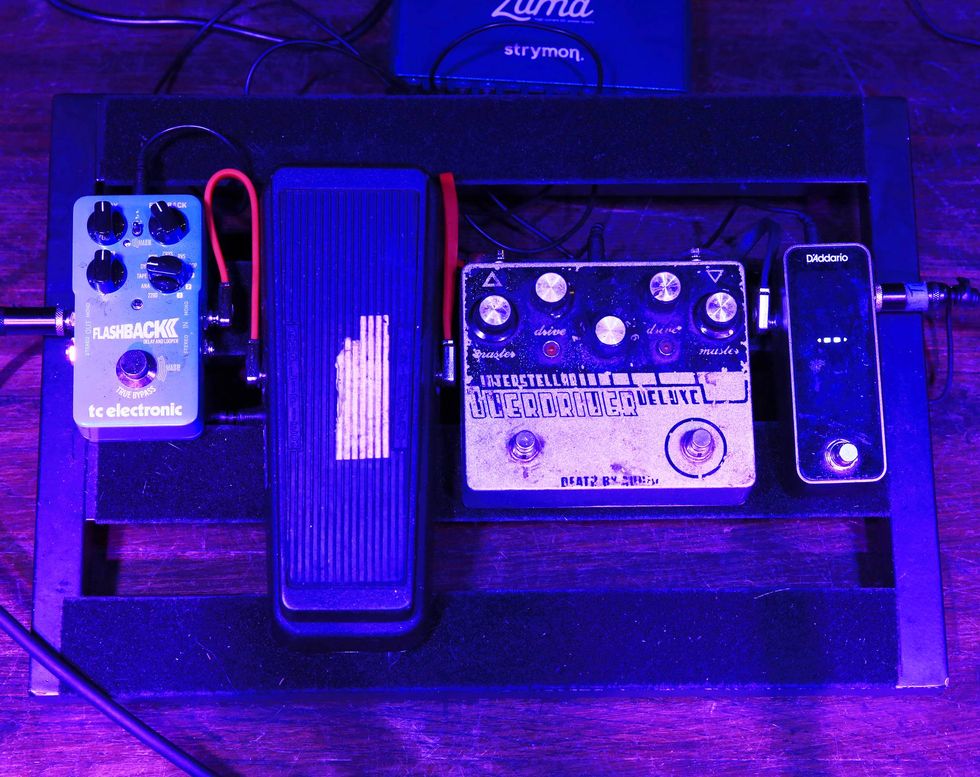
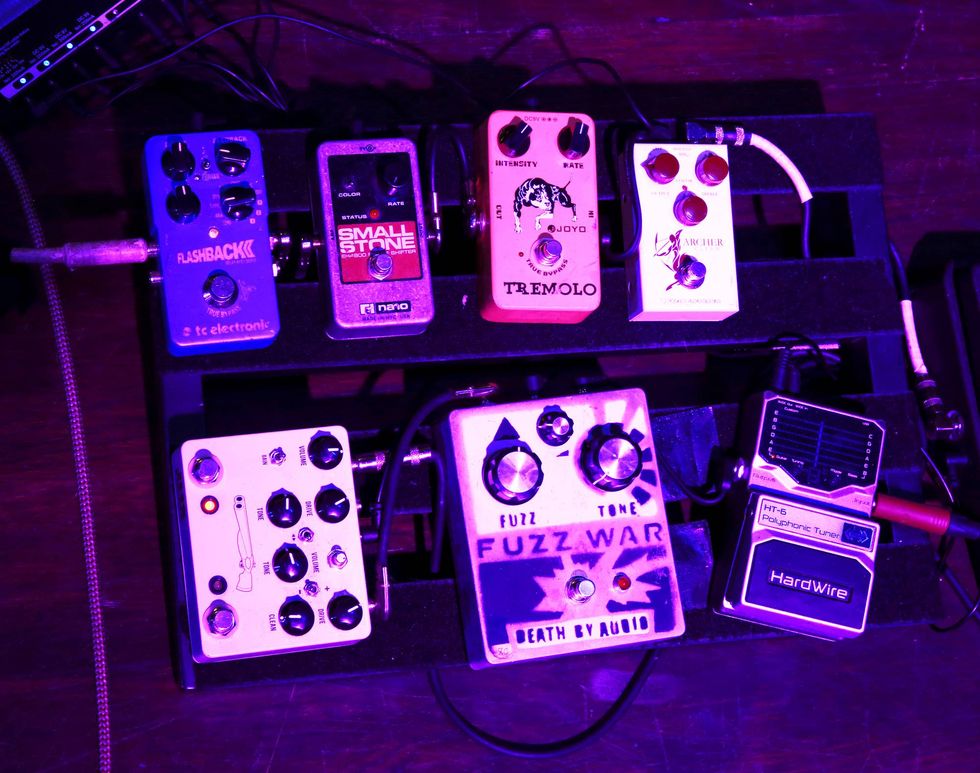
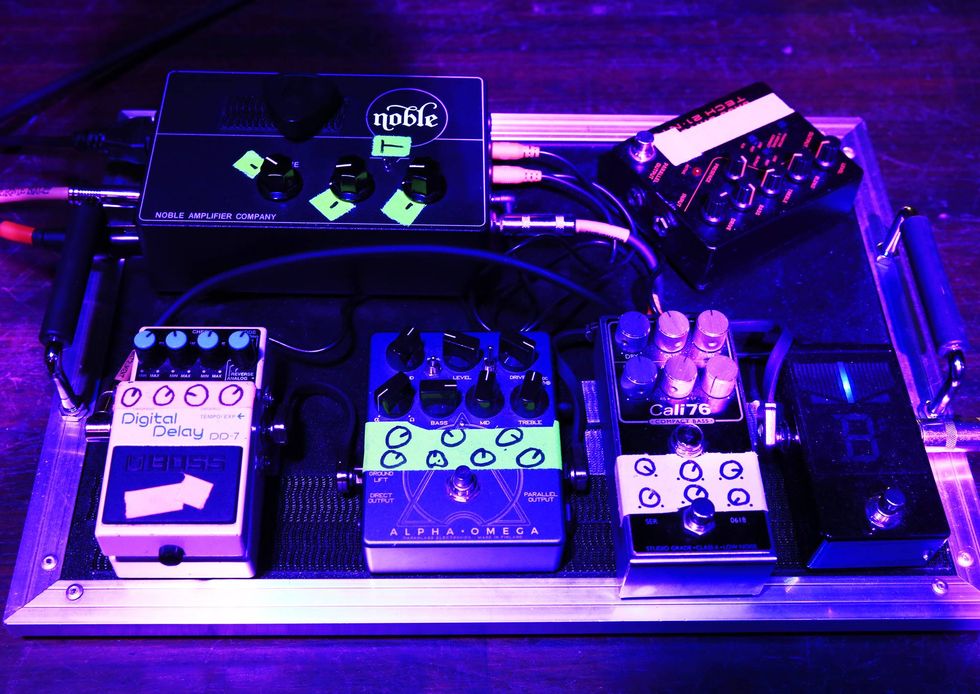
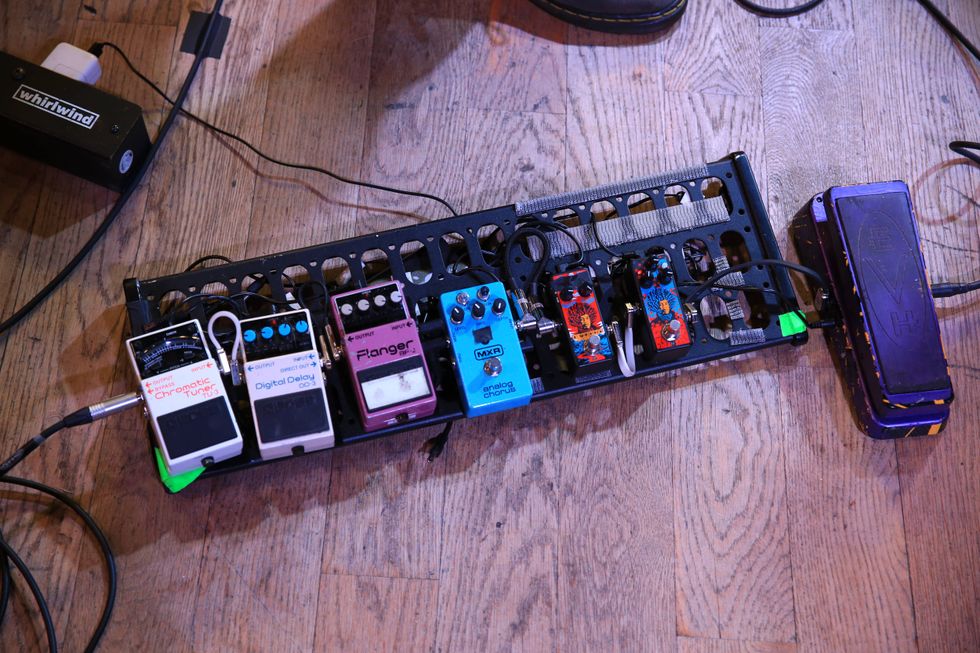
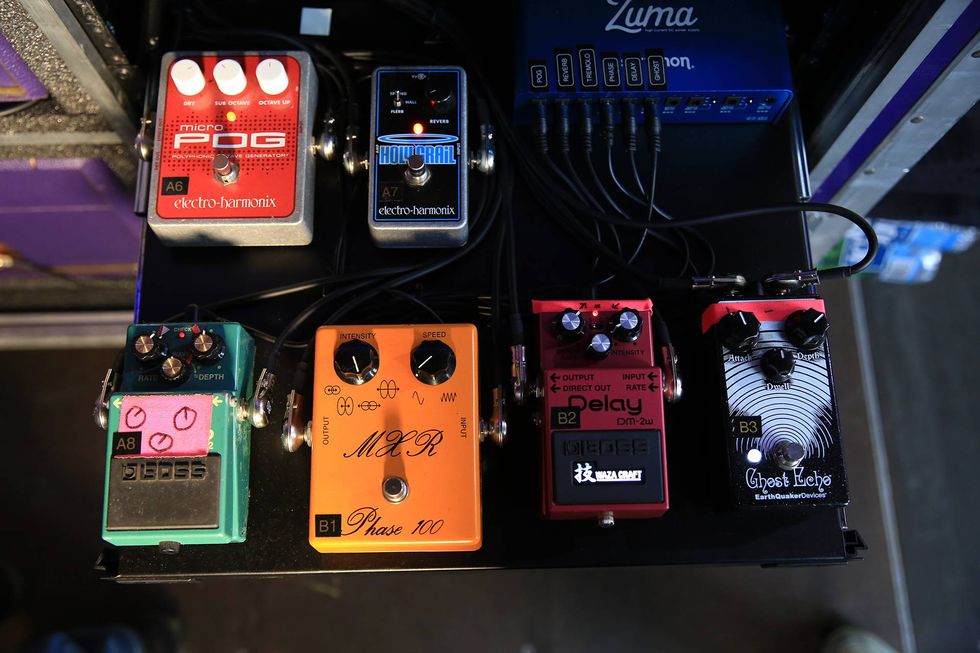
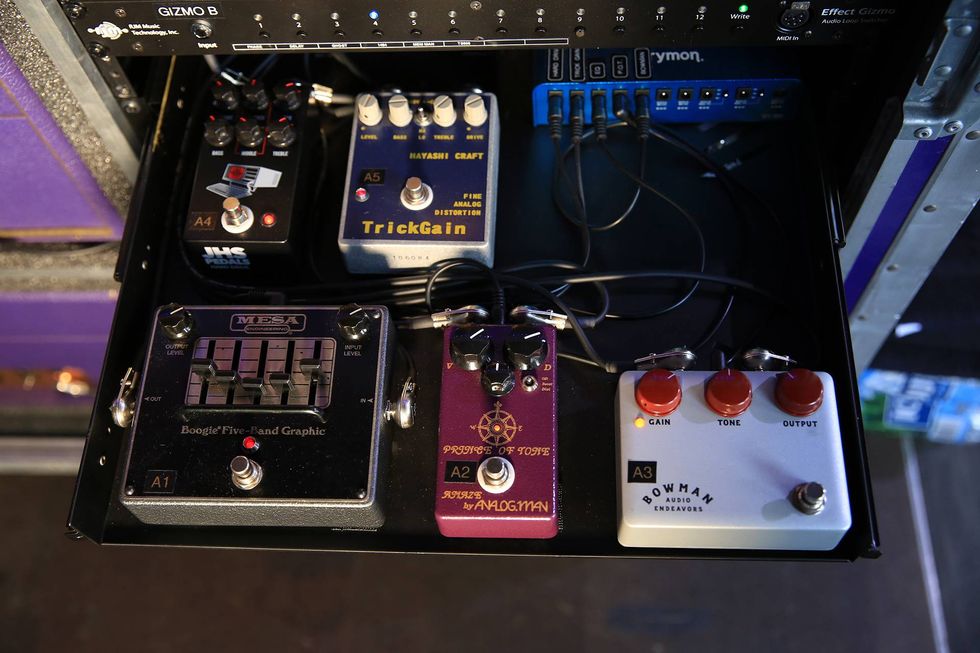
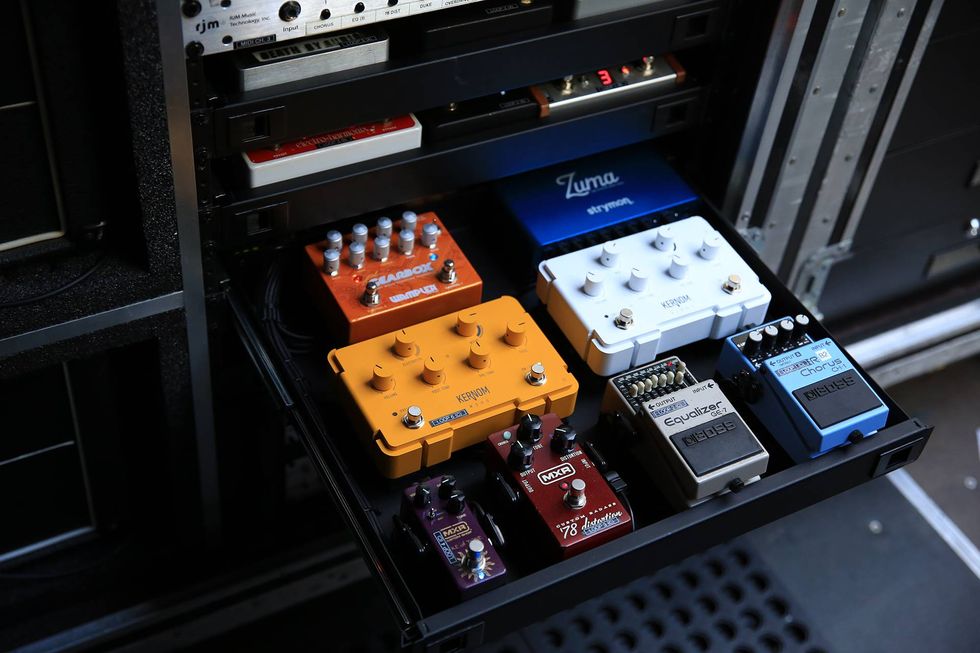
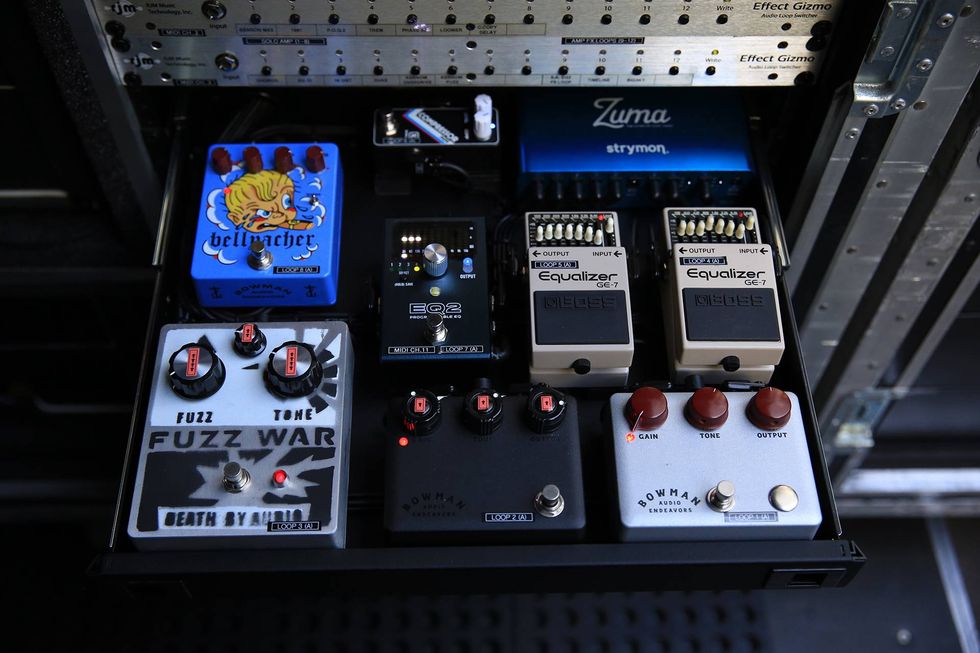
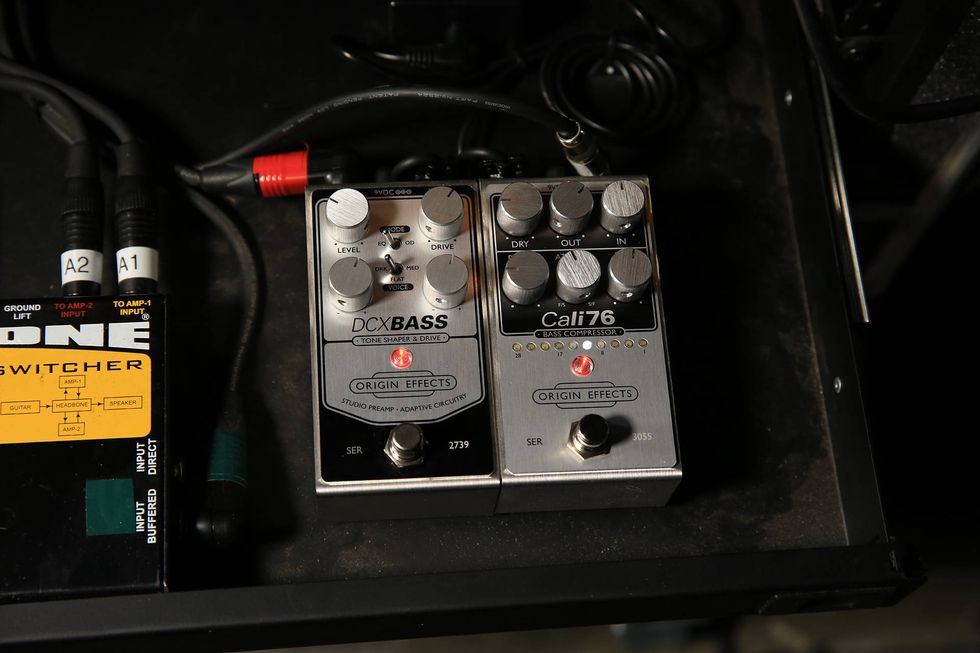
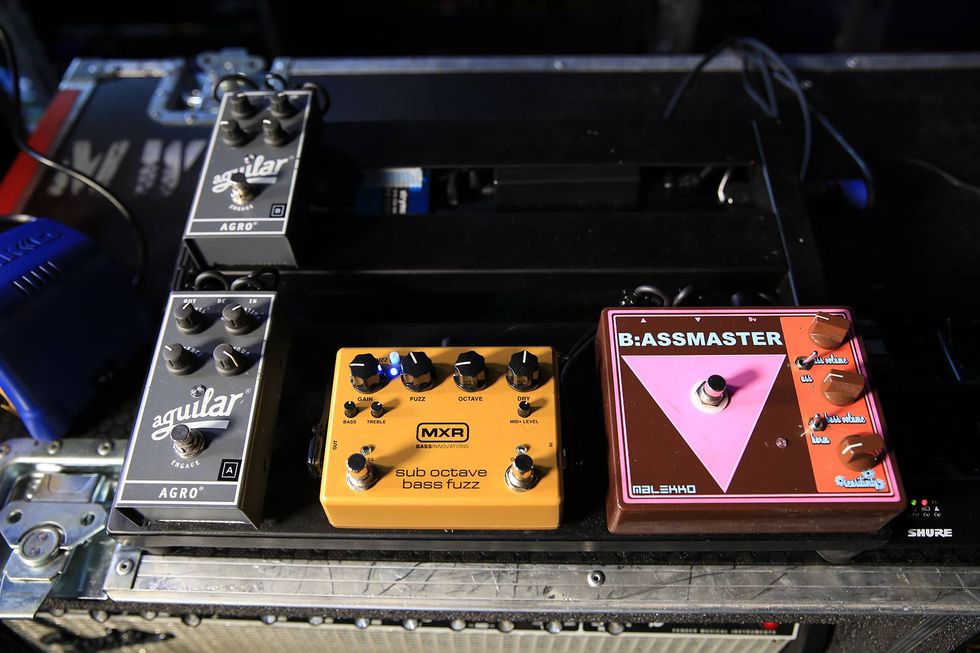
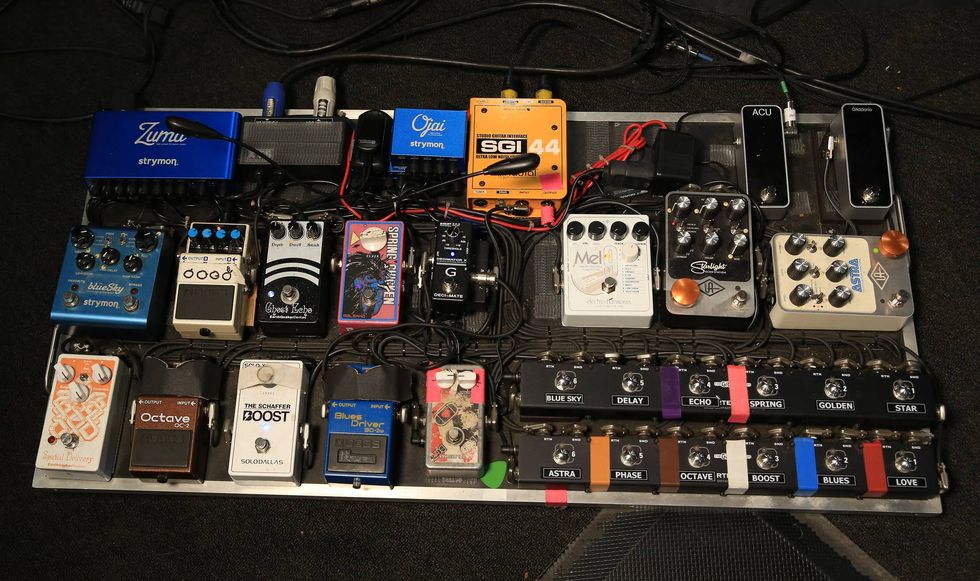
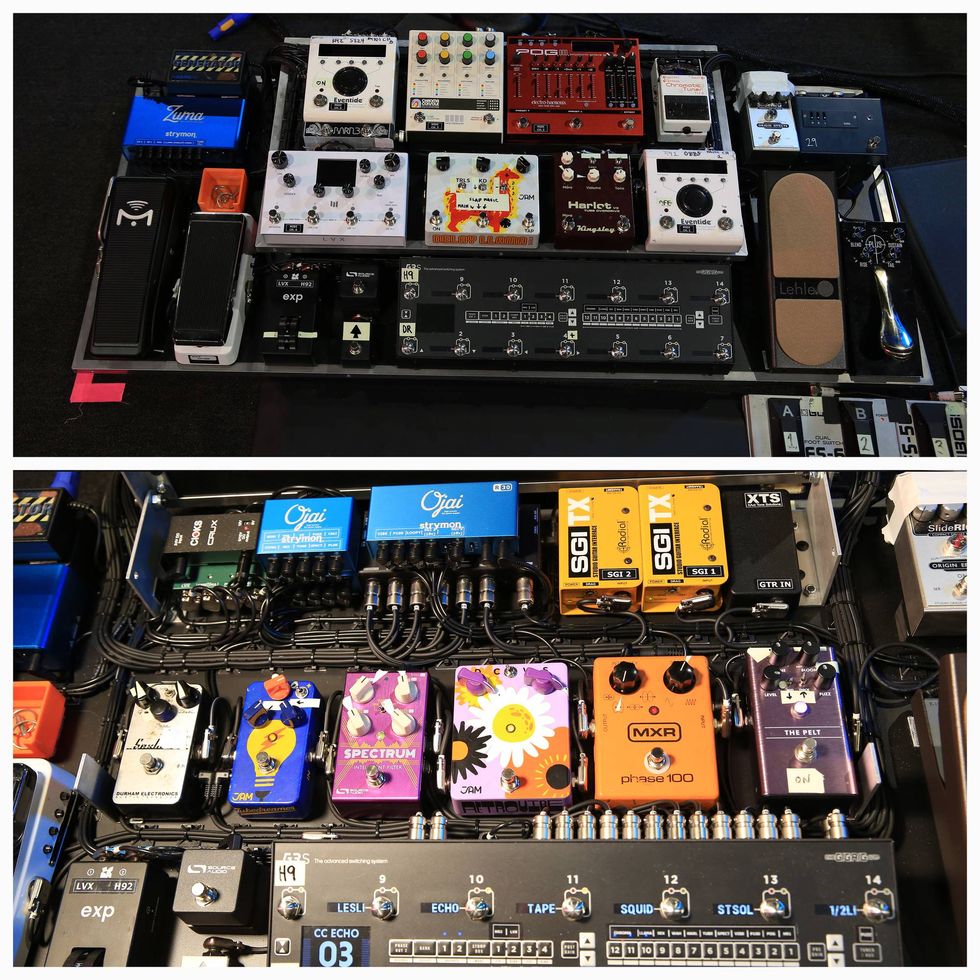
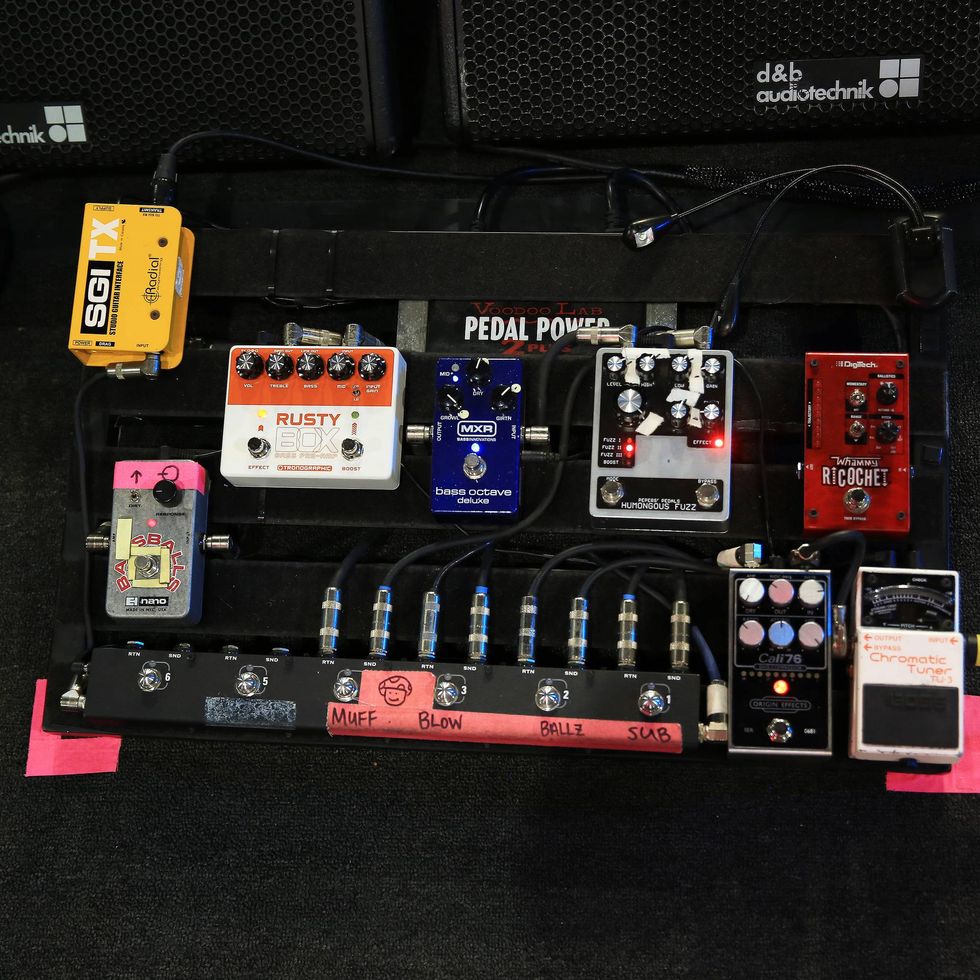

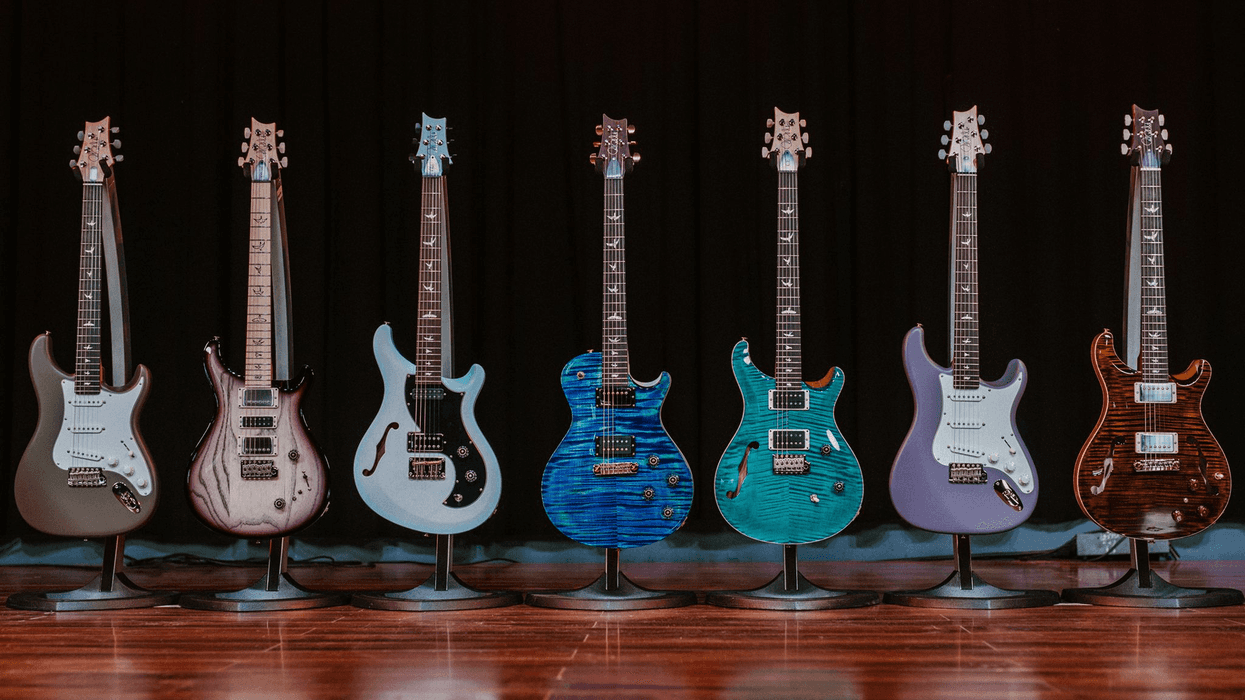

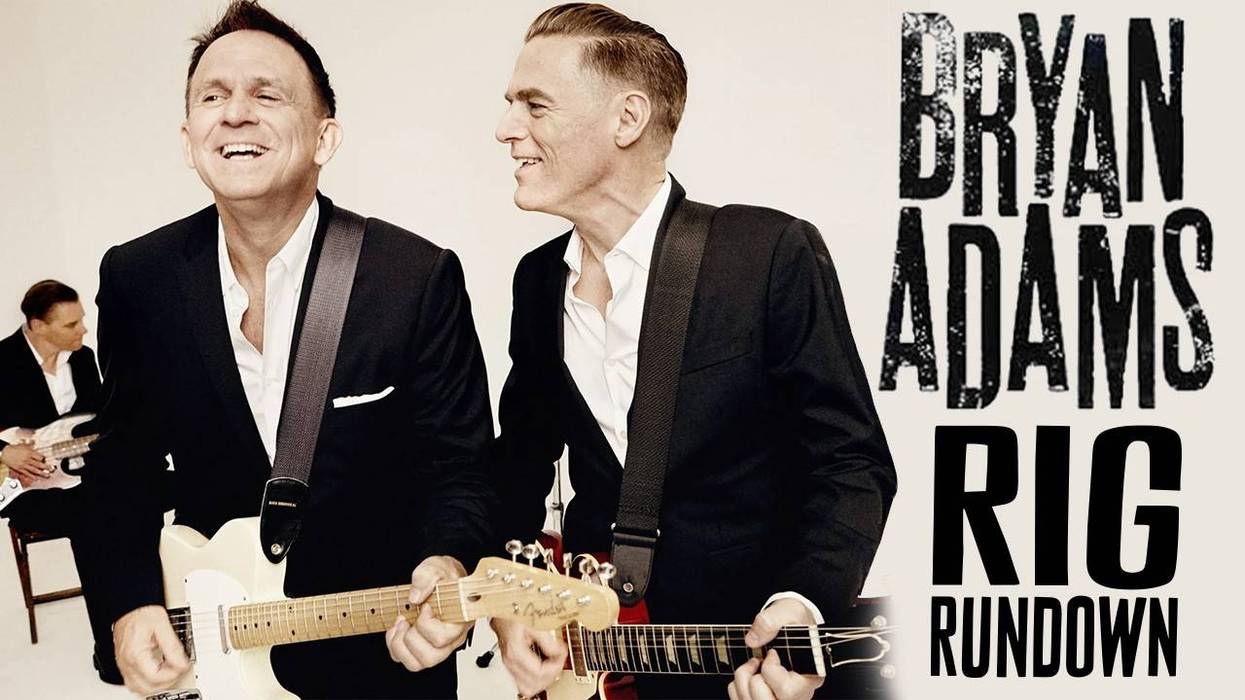
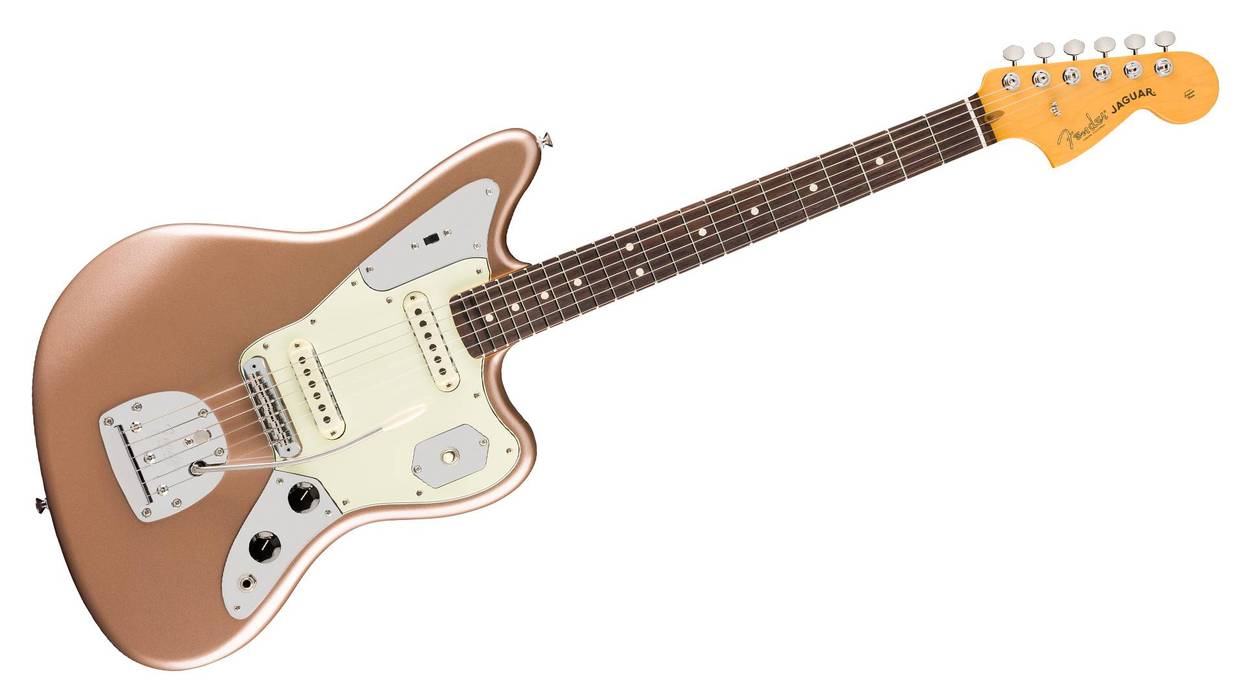
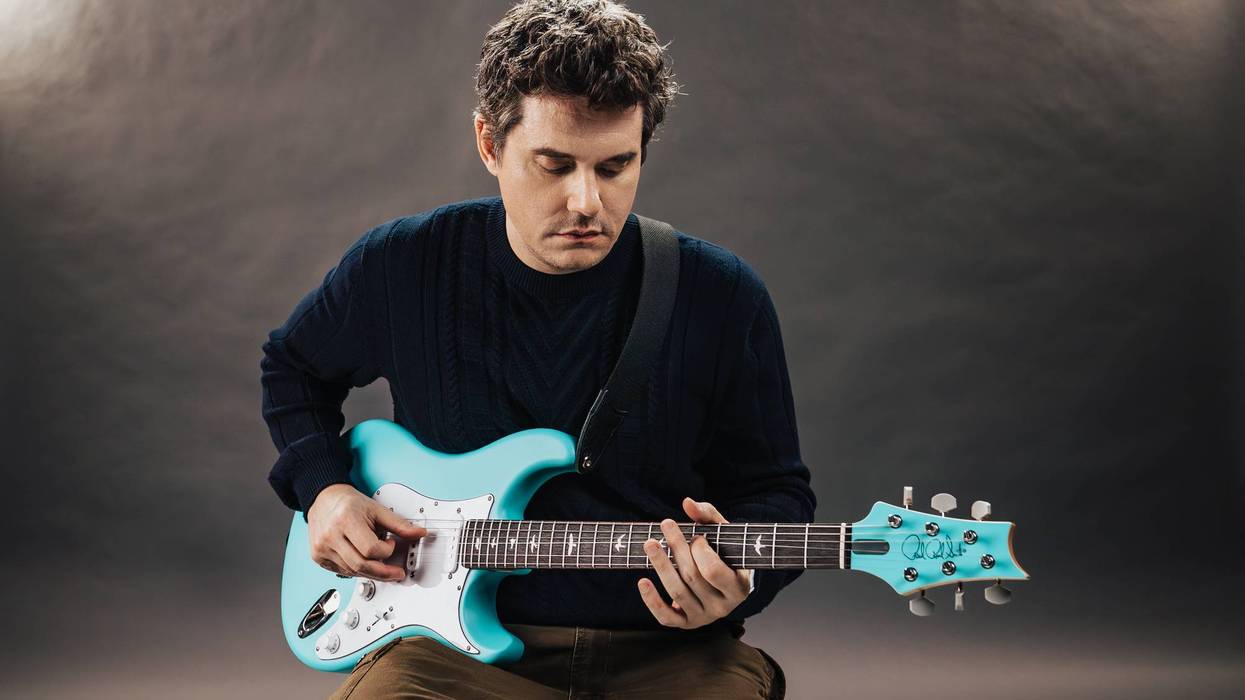



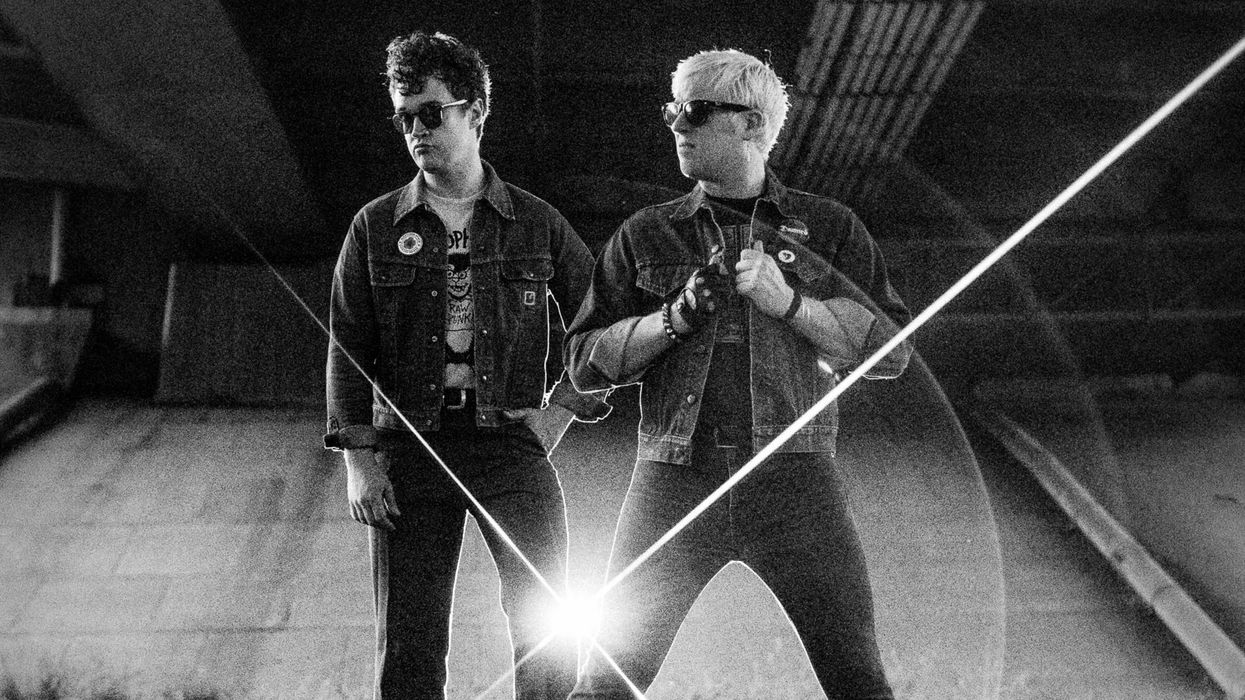
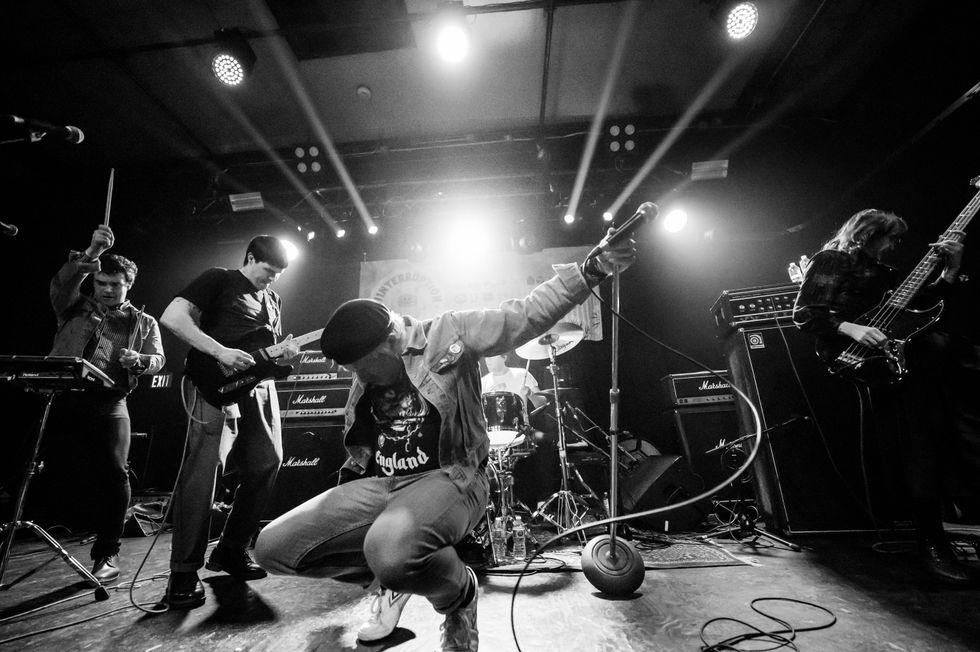

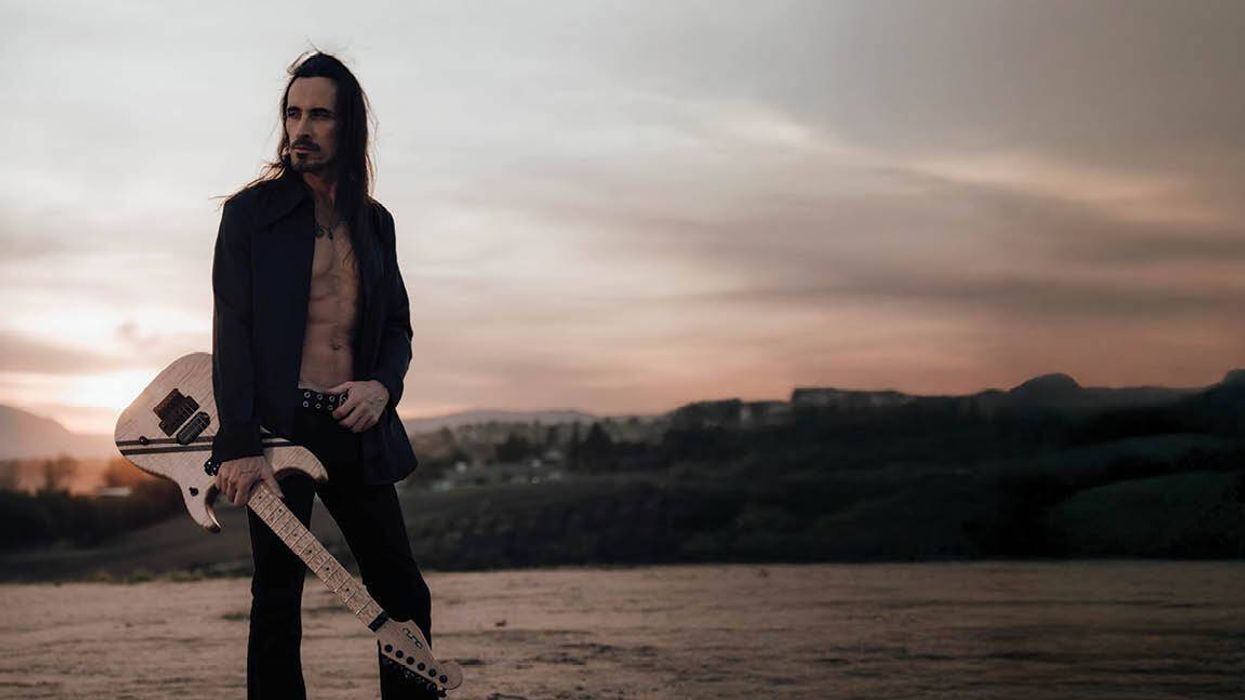
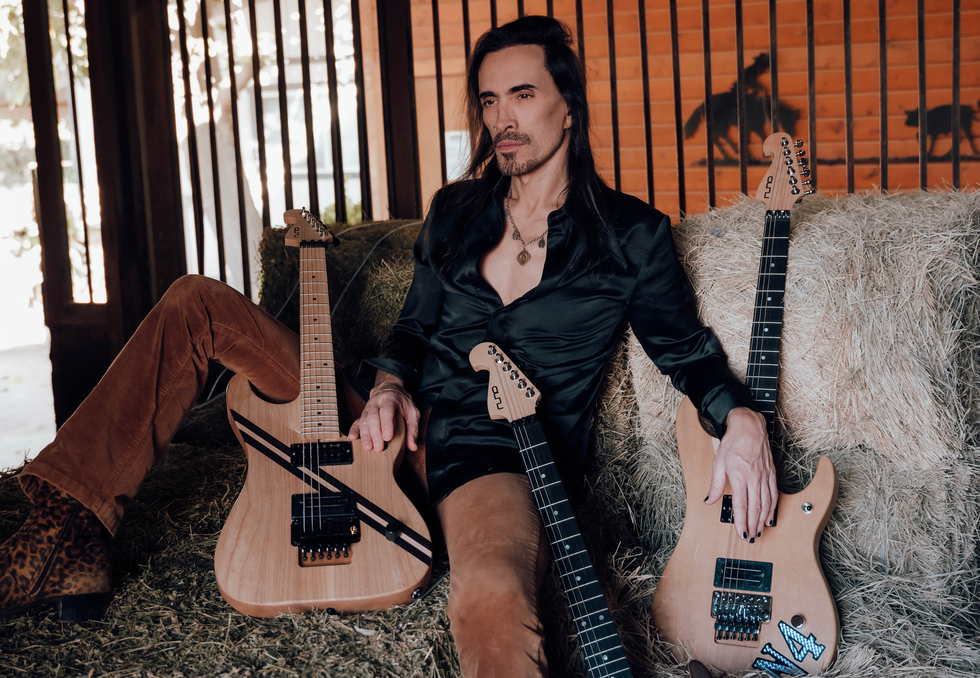

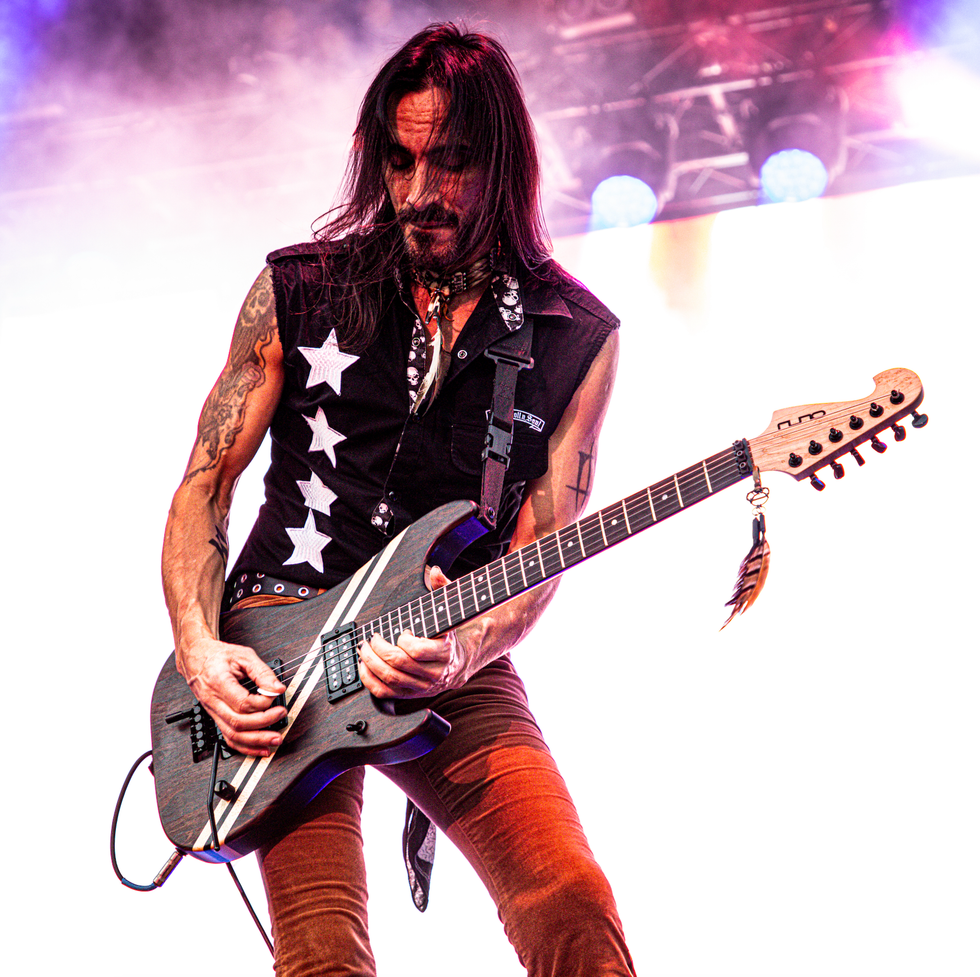 Bettencourt onstage with the Dark Horse at the Motocultor Festival in Carhaix, France, on August 23, 2005 Sarah "Sartemys" Leclerc
Bettencourt onstage with the Dark Horse at the Motocultor Festival in Carhaix, France, on August 23, 2005 Sarah "Sartemys" Leclerc